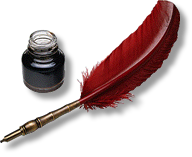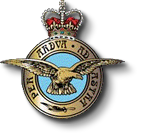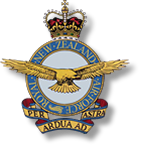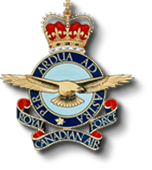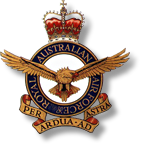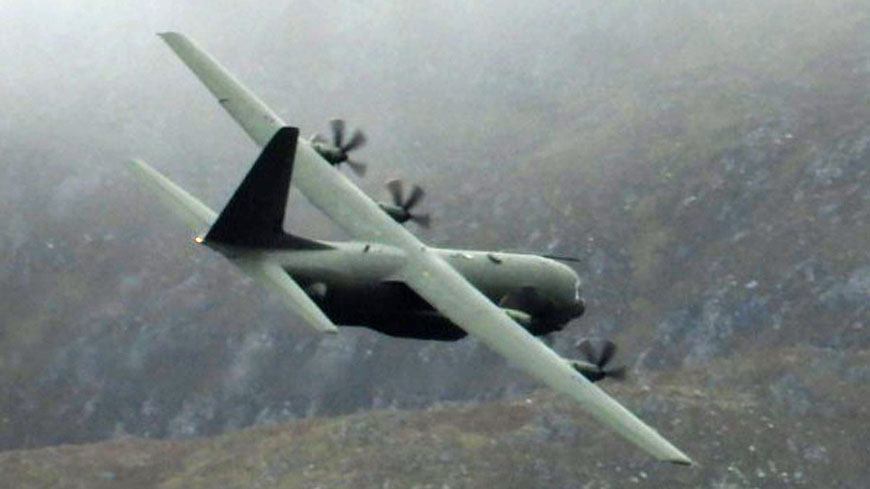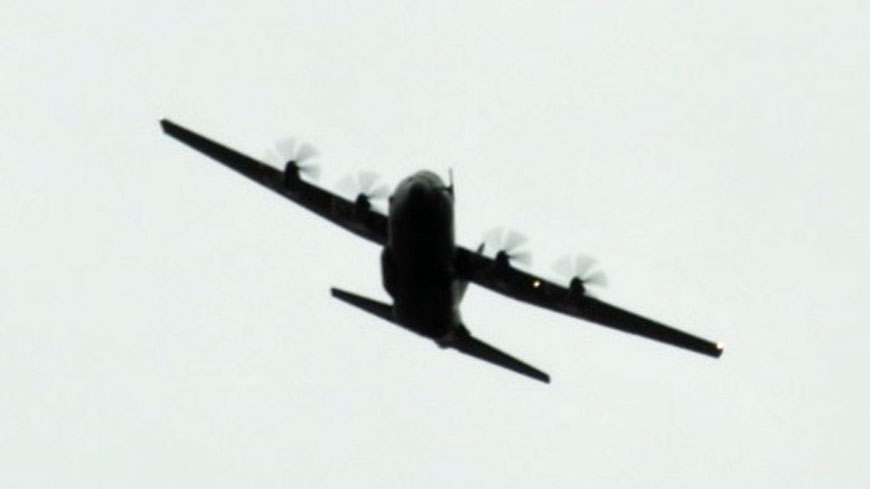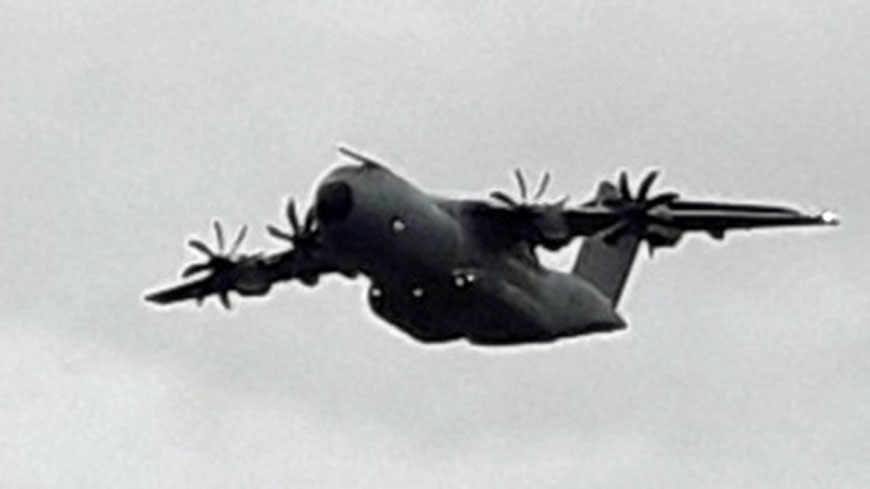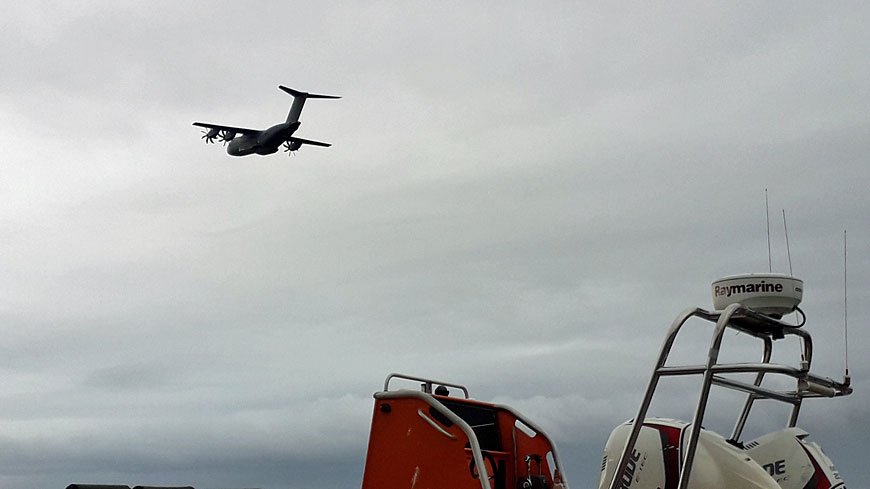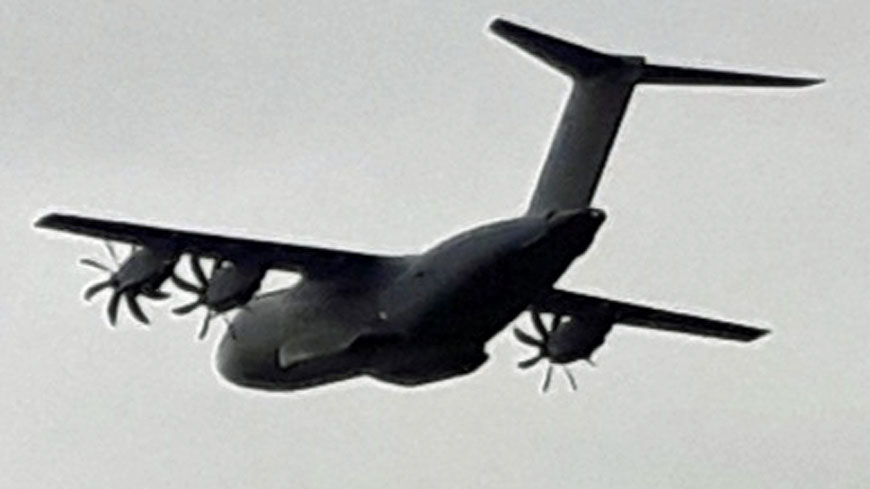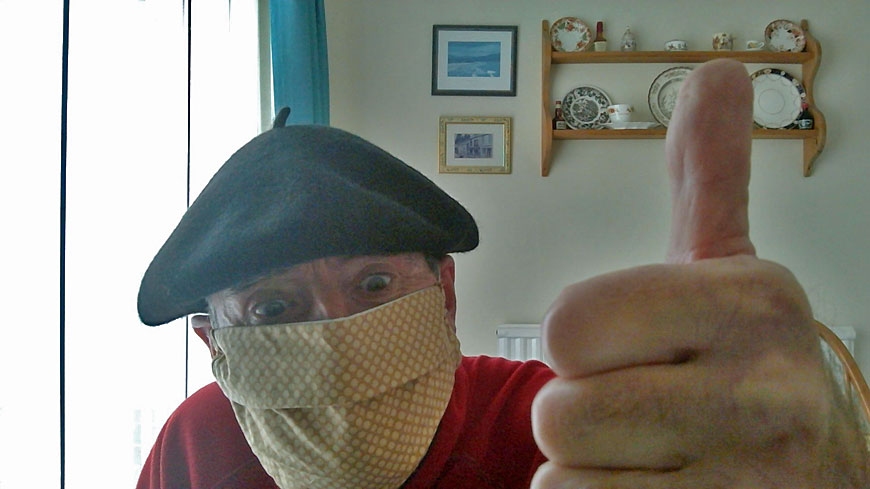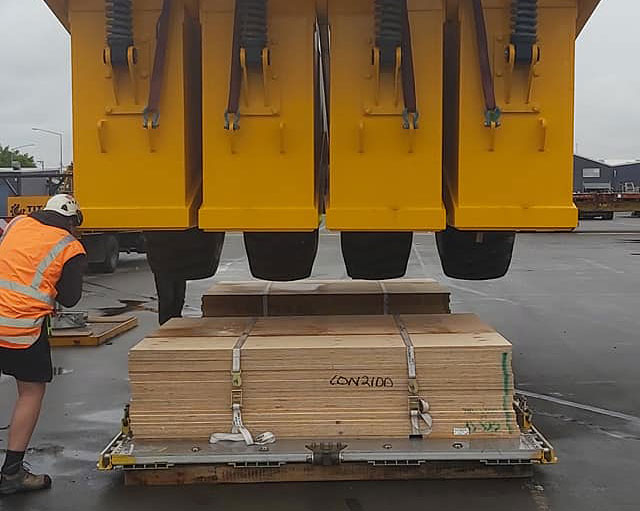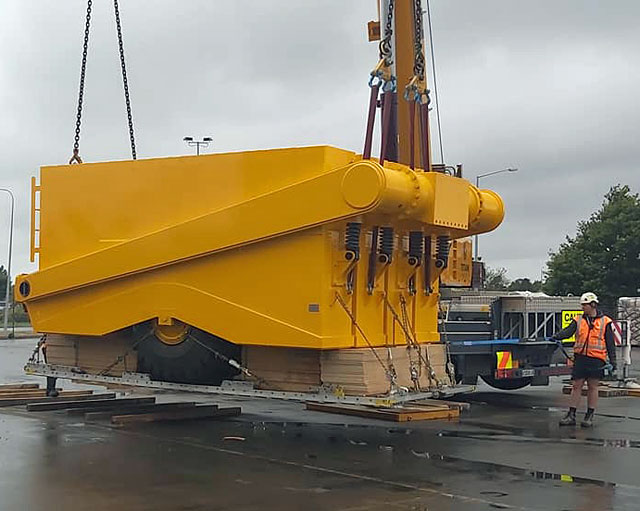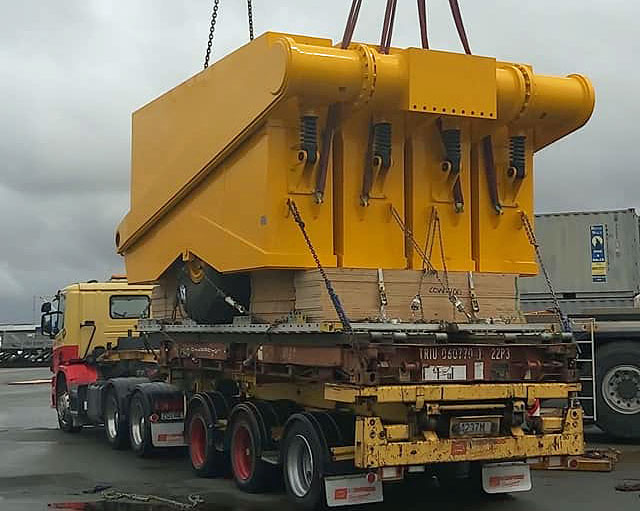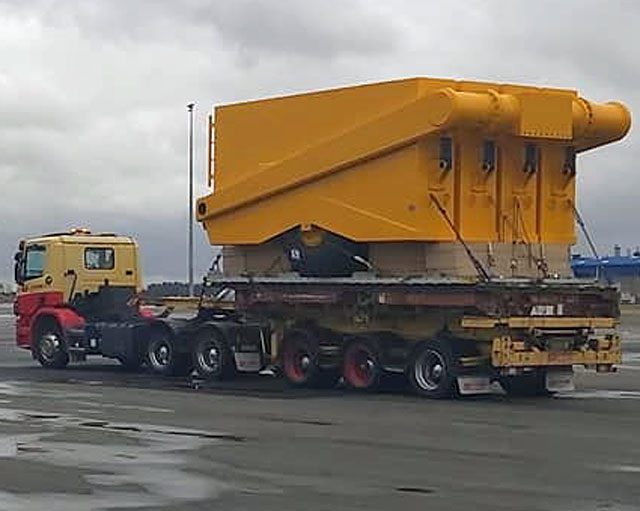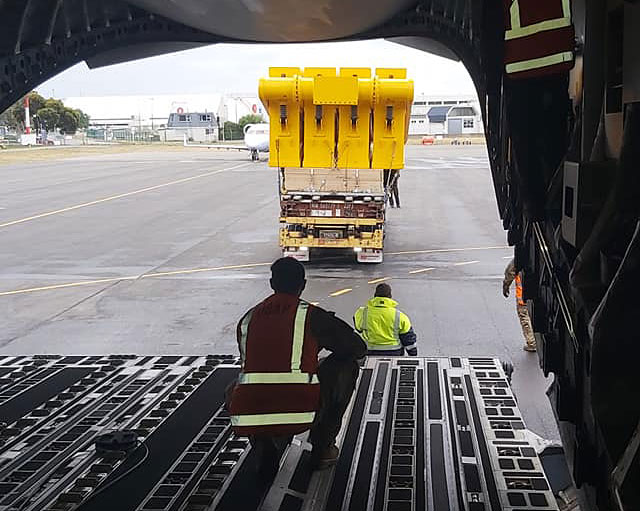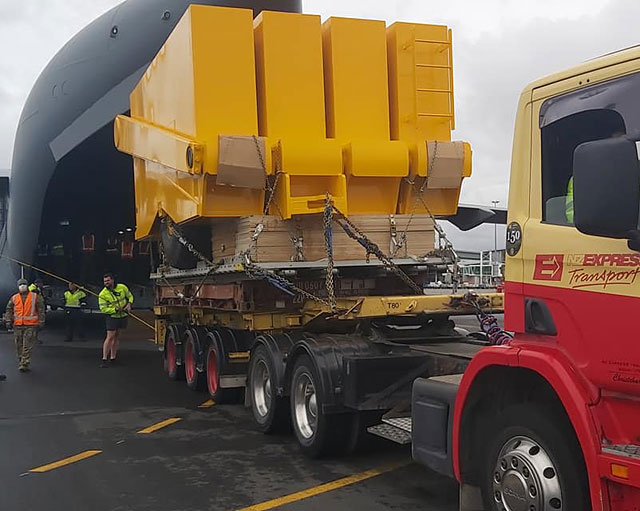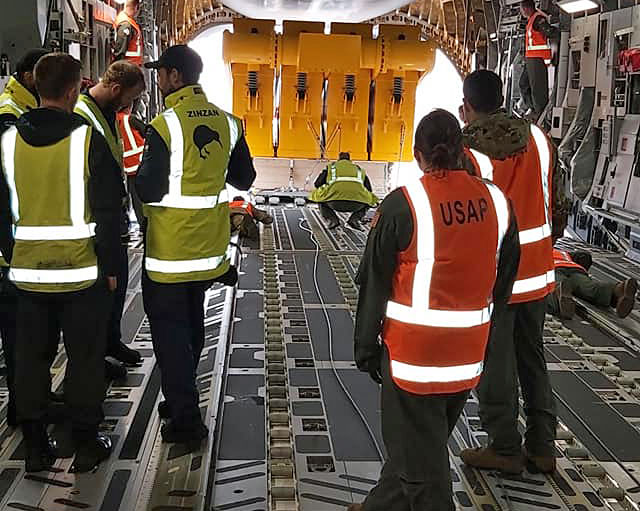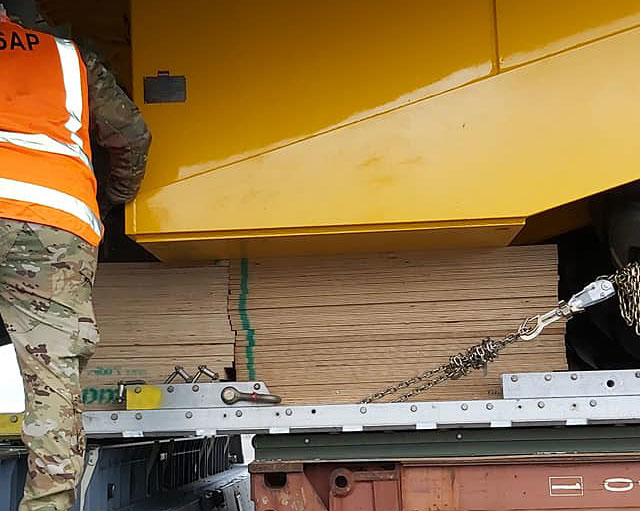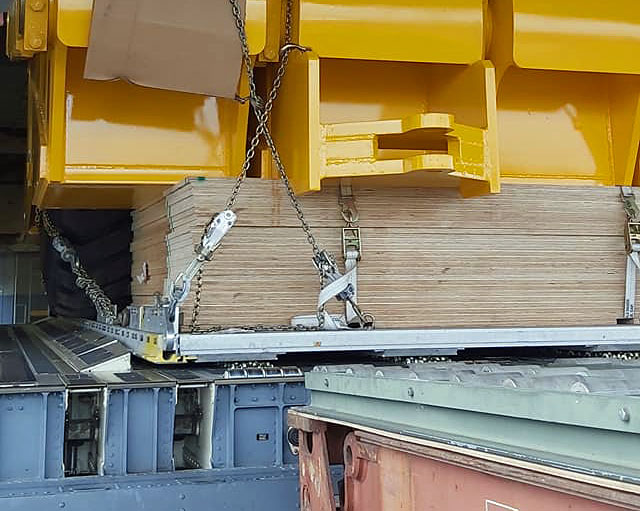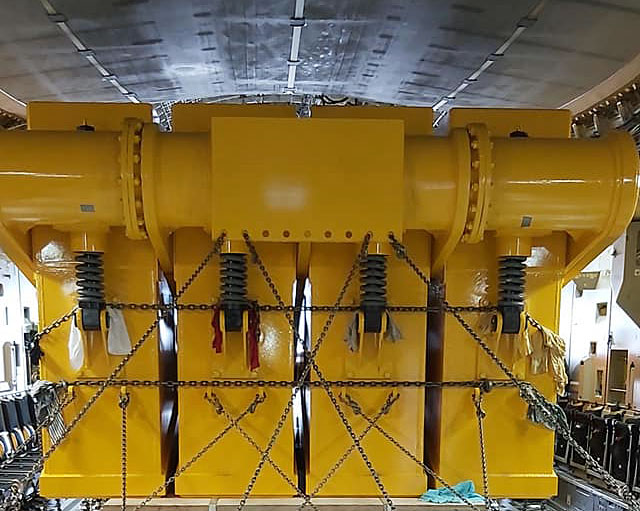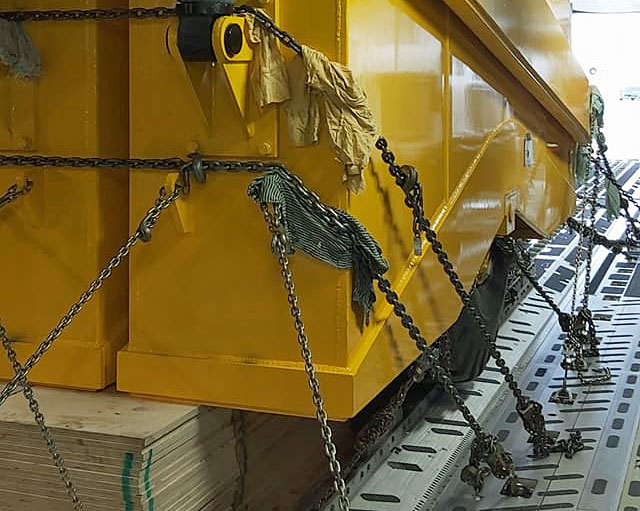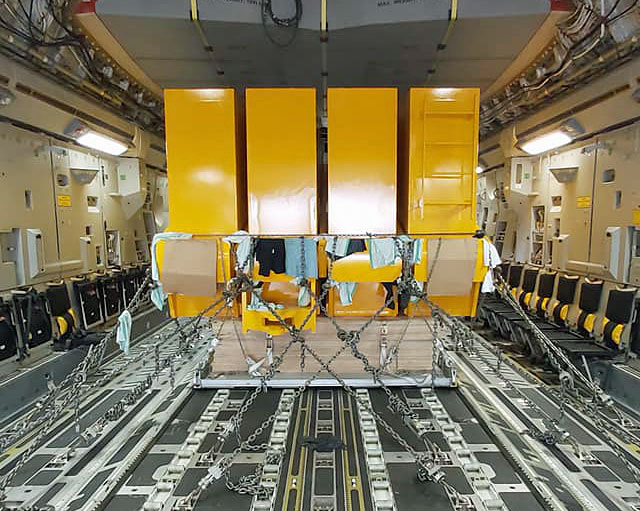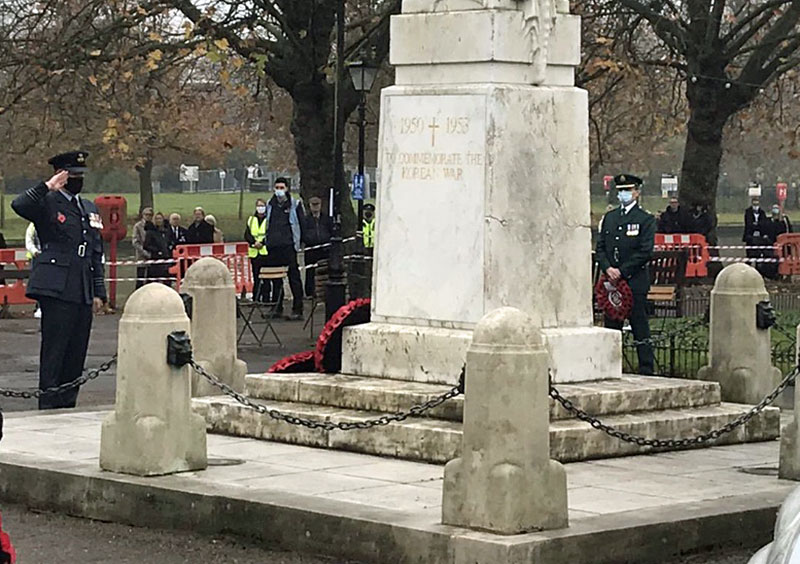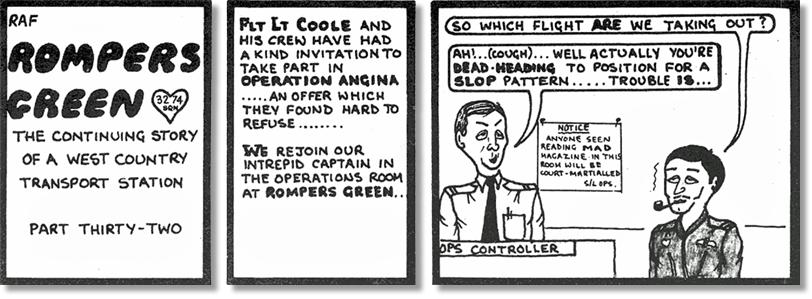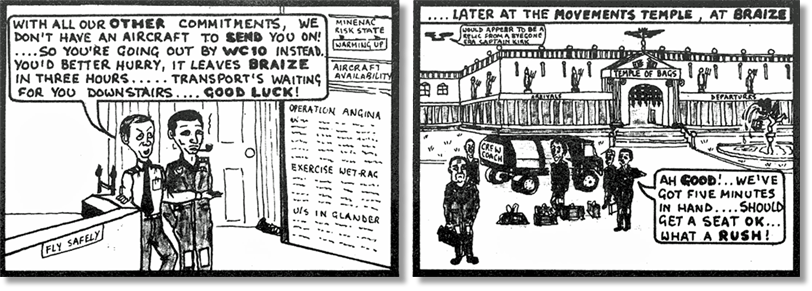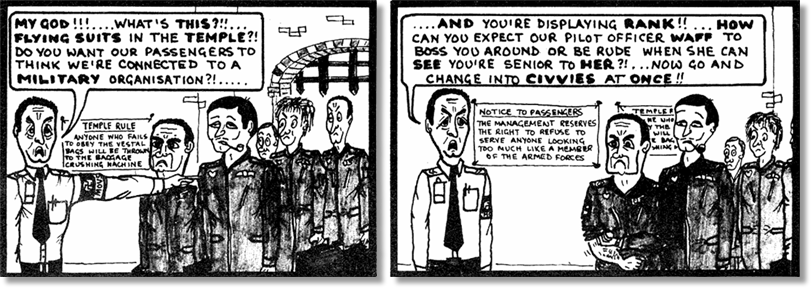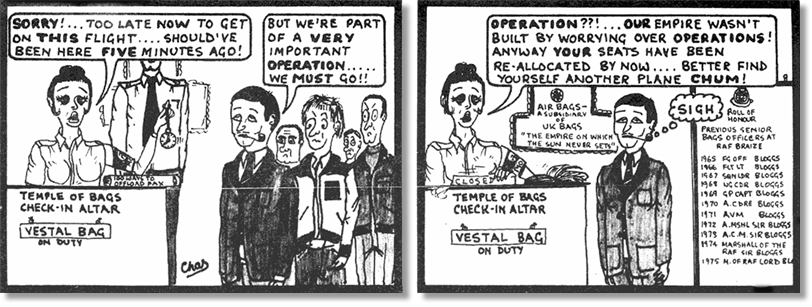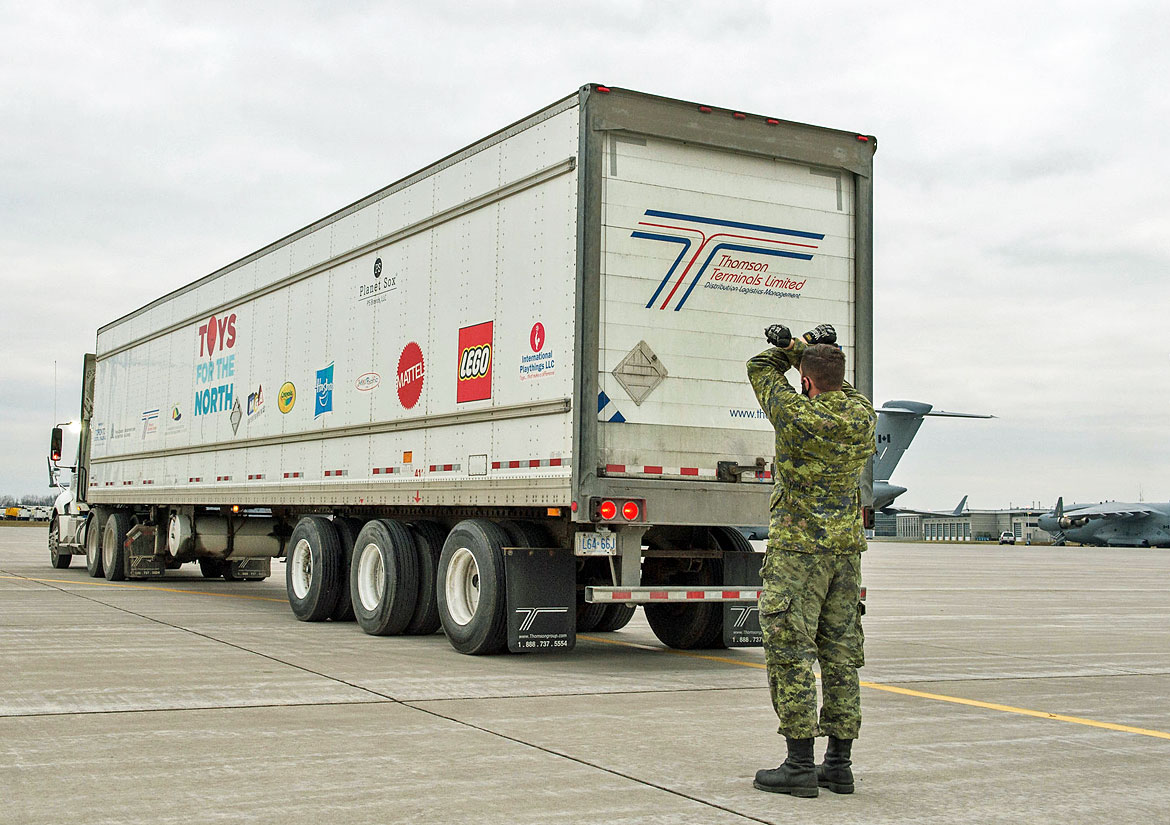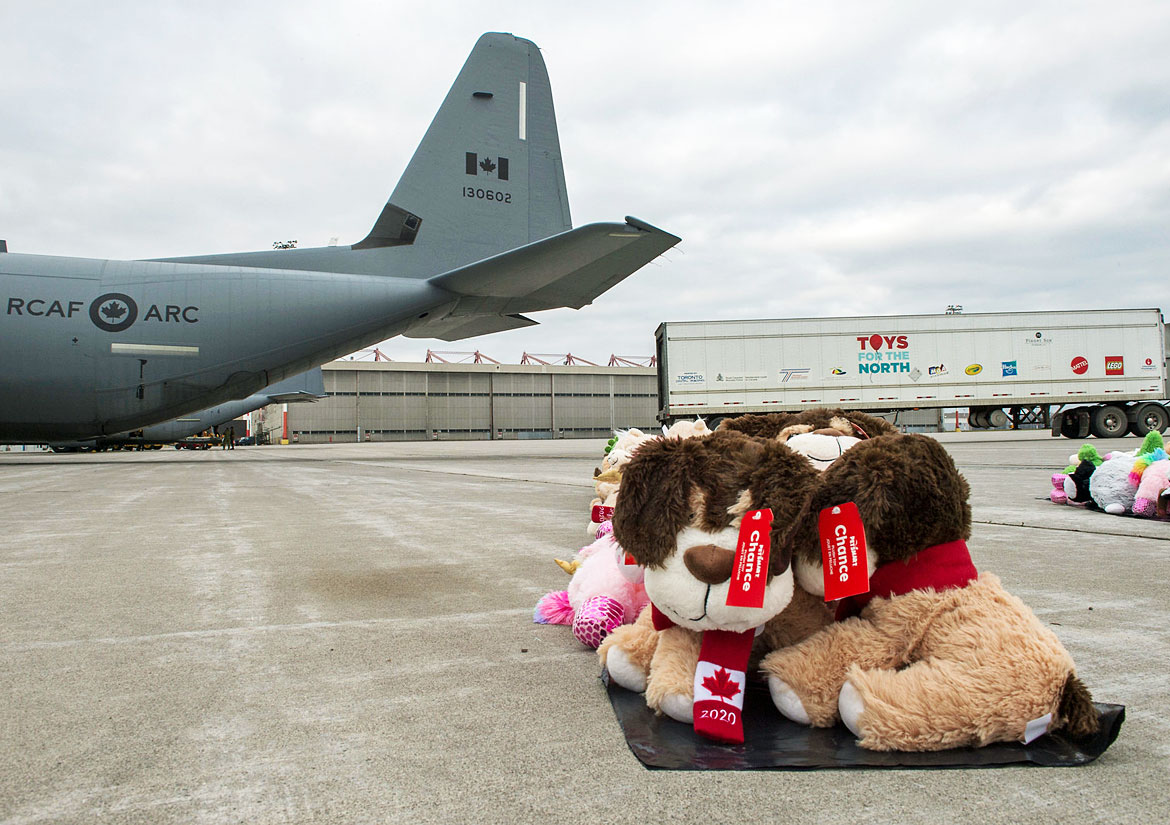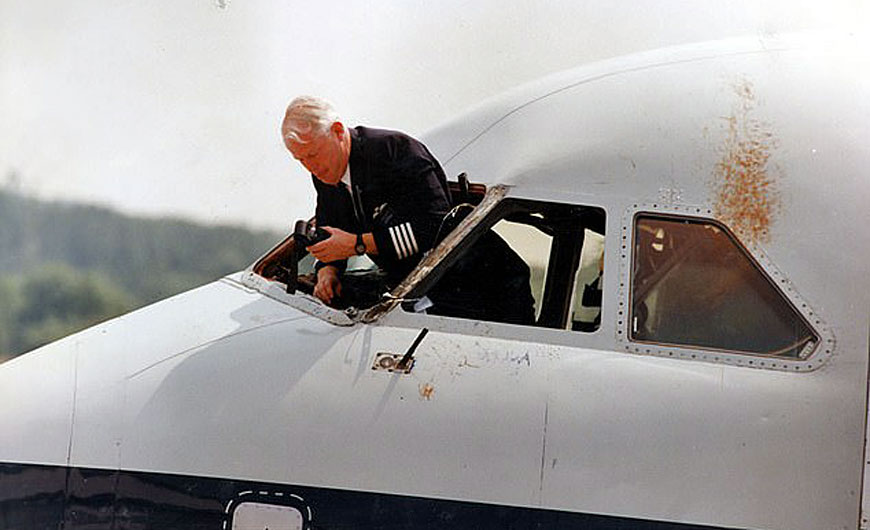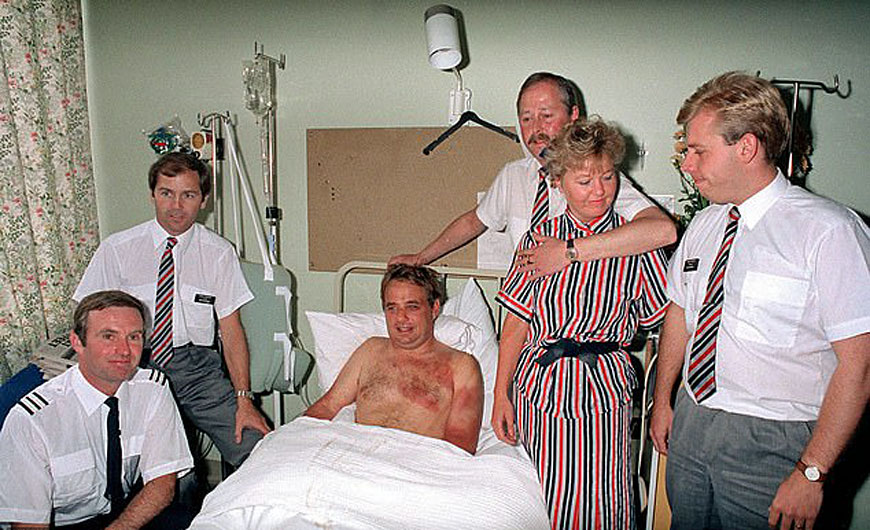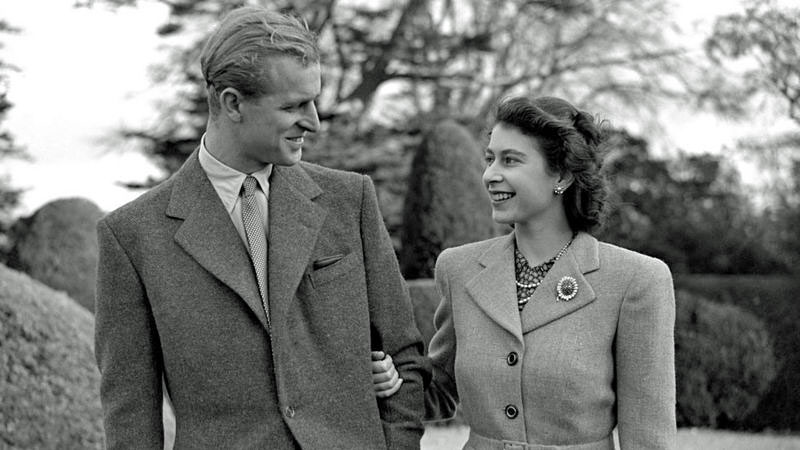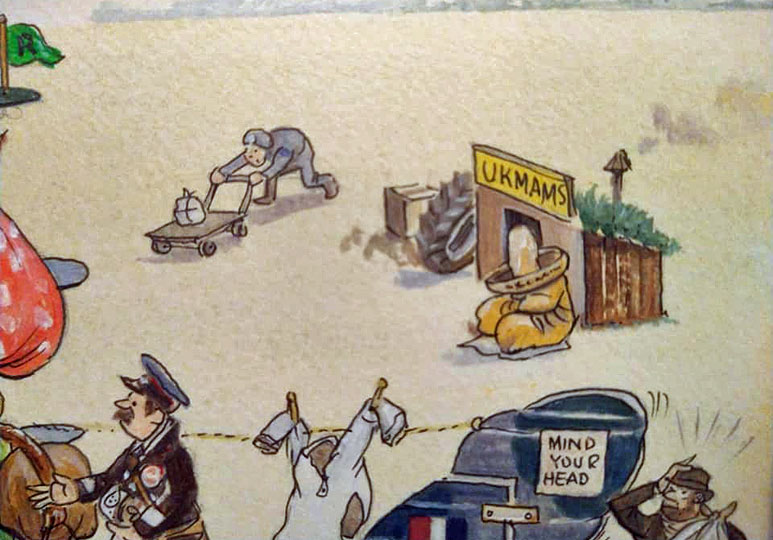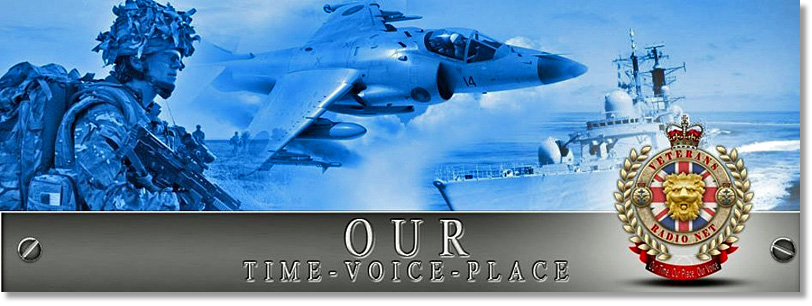


RCAF to continue United Nations support out of Uganda in 2021
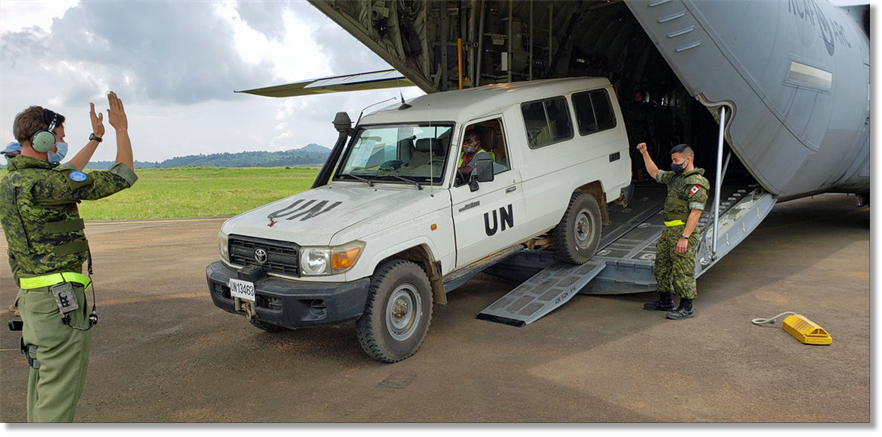
As part of Canada’s contribution to the United Nations (UN), the Canadian Armed Forces (CAF) committed for another year to support the UN Cross Mission Logistics Operations out of Entebbe Support Base, Uganda.
The Royal Canadian Air Force is providing a CC-130J Hercules from 436 Transport Squadron, a world-class Tactical Airlift unit based out of 8 Wing Trenton, Ontario. This Tactical Airlift Detachment (TAL Det) brought together CAF members from different wings, bases, and units from across Eastern Canada which created an effective, collaborative and professional working environment. The team demonstrated remarkable cohesion and professionalism throughout the episodic deployment. The hard-working crew excelled through their agility and flexibility, adapting to the differences between the UN and RCAF operations, to get the job done. Aligned with the 2 Wing expeditionary concept, a small but well-equipped headquarters was stood up for the duration of the operation.
The members quickly got to work, enabling expeditious flying operations. The TAL Det transported an impressive 200,000 lbs of cargo, including UN armoured vehicles, and 200 passengers during the three week flying period in the Democratic Republic of Congo. The TAL Det construct was drawn from the RCAF doctrine, and then scaled down from the Air Task Force concept. It has already proven its efficiency on several rotations in support of Op Presence Uganda and UN missions since April 1, 2019.
The RCAF has operated safely in a COVID-19 environment. Despite some challenges including 14-day quarantines before and after the mission, the detachment members adapted well, maintaining operations while adhering to CAF and local health safety precautions.
(By Master Warrant Officer Dominic Allard, Senior Warrant Officer of the Air Detachment deployed on Operation Presence in Uganda.)
The Royal Canadian Air Force is providing a CC-130J Hercules from 436 Transport Squadron, a world-class Tactical Airlift unit based out of 8 Wing Trenton, Ontario. This Tactical Airlift Detachment (TAL Det) brought together CAF members from different wings, bases, and units from across Eastern Canada which created an effective, collaborative and professional working environment. The team demonstrated remarkable cohesion and professionalism throughout the episodic deployment. The hard-working crew excelled through their agility and flexibility, adapting to the differences between the UN and RCAF operations, to get the job done. Aligned with the 2 Wing expeditionary concept, a small but well-equipped headquarters was stood up for the duration of the operation.
The members quickly got to work, enabling expeditious flying operations. The TAL Det transported an impressive 200,000 lbs of cargo, including UN armoured vehicles, and 200 passengers during the three week flying period in the Democratic Republic of Congo. The TAL Det construct was drawn from the RCAF doctrine, and then scaled down from the Air Task Force concept. It has already proven its efficiency on several rotations in support of Op Presence Uganda and UN missions since April 1, 2019.
The RCAF has operated safely in a COVID-19 environment. Despite some challenges including 14-day quarantines before and after the mission, the detachment members adapted well, maintaining operations while adhering to CAF and local health safety precautions.
(By Master Warrant Officer Dominic Allard, Senior Warrant Officer of the Air Detachment deployed on Operation Presence in Uganda.)

From: Peter Clayton, Wroughton, Wilts
Subject: Photos from Scotland
Hi Tony,
I was recently up in Scotland and saw some visitors from RAF Brize Norton doing some low level training. Some taken over the Kyle of Lochalsh and Kintail plus the C-130 over the Sound of Mull ferry that I was about to board. One of the pilots flying the C130 over the ferry was the son of one of our ex-movers, small world.
Not much to say about life with the Covid 19 pandemic except that I think everyone appears to be getting fed up with it all. I think there is some way to go yet so keep safe.
Regards, Peter
Subject: Photos from Scotland
Hi Tony,
I was recently up in Scotland and saw some visitors from RAF Brize Norton doing some low level training. Some taken over the Kyle of Lochalsh and Kintail plus the C-130 over the Sound of Mull ferry that I was about to board. One of the pilots flying the C130 over the ferry was the son of one of our ex-movers, small world.
Not much to say about life with the Covid 19 pandemic except that I think everyone appears to be getting fed up with it all. I think there is some way to go yet so keep safe.
Regards, Peter
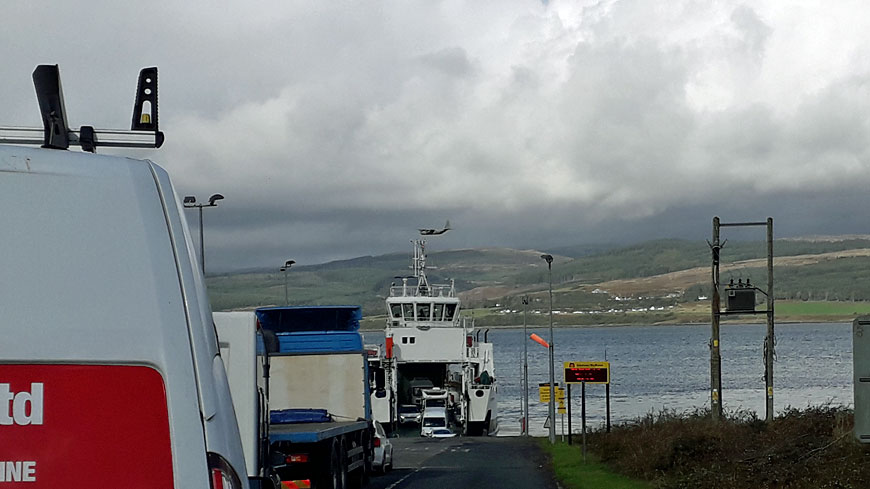

From: Chris Goss, Marlow, Bucks
Subject: RE: UKMAMS OBA OBB #103120
Tony,
Thanks again for another entertaining newsletter, enjoyed in bed on Saturday morning as wife has had to go to Yorkshire as her Mum (79) has suspected cancer.
You, and no doubt others, will be interested to know that I have been approached by Key Publishing to write for their book division. What I suggested was a photo album book of British combat aircraft 1970s-90s.
Why? At Dave Eggleton's funeral, Ian Berry introduced me to Dave Howley - he had left the RAF when I joined. Wind forward a few months and Dave told me he had decided to give up aviation photography and modelling and that he wanted me to have all of his photos (1,000s by the way). Honoured and humbled I accepted. Wind forward a few more months I phoned and said I was able to come and collect only to be told by his wife that he has passed away (cancer... again - 19 October, 2015). Shocked or what? Dave had never let on.
This series of books will be a tribute to Dave - I would not have done it unless he had done what he had done. Will keep you in the picture as to publication date - first one is Lightning and Phantom (180 photos, all but 20 colour).
Regards, Chris
Subject: RE: UKMAMS OBA OBB #103120
Tony,
Thanks again for another entertaining newsletter, enjoyed in bed on Saturday morning as wife has had to go to Yorkshire as her Mum (79) has suspected cancer.
You, and no doubt others, will be interested to know that I have been approached by Key Publishing to write for their book division. What I suggested was a photo album book of British combat aircraft 1970s-90s.
Why? At Dave Eggleton's funeral, Ian Berry introduced me to Dave Howley - he had left the RAF when I joined. Wind forward a few months and Dave told me he had decided to give up aviation photography and modelling and that he wanted me to have all of his photos (1,000s by the way). Honoured and humbled I accepted. Wind forward a few more months I phoned and said I was able to come and collect only to be told by his wife that he has passed away (cancer... again - 19 October, 2015). Shocked or what? Dave had never let on.
This series of books will be a tribute to Dave - I would not have done it unless he had done what he had done. Will keep you in the picture as to publication date - first one is Lightning and Phantom (180 photos, all but 20 colour).
Regards, Chris

From: Barrie Hay
To: Kate O'Brien (Chris Swaithes' Granddaughter)
Subject: Chris Swaithes
Dear Kate,
I saw your request in the UKMAMS Old Bods Association newsletter and I remember Chris from my days in the RAF. I was OC UKMAMS from August 1989 to December 1992. My predecessor was a man called Dave Nichol and I think that Chris was his predecessor.
I have attached a photo which was taken when we held a dining-in night at Lyneham in November 1991 to celebrate the 25th anniversary of the formation of UKMAMS. You can see Chris standing behind me. Others in the photo except for 2 people were previous OC UKMAMS.
To: Kate O'Brien (Chris Swaithes' Granddaughter)
Subject: Chris Swaithes
Dear Kate,
I saw your request in the UKMAMS Old Bods Association newsletter and I remember Chris from my days in the RAF. I was OC UKMAMS from August 1989 to December 1992. My predecessor was a man called Dave Nichol and I think that Chris was his predecessor.
I have attached a photo which was taken when we held a dining-in night at Lyneham in November 1991 to celebrate the 25th anniversary of the formation of UKMAMS. You can see Chris standing behind me. Others in the photo except for 2 people were previous OC UKMAMS.
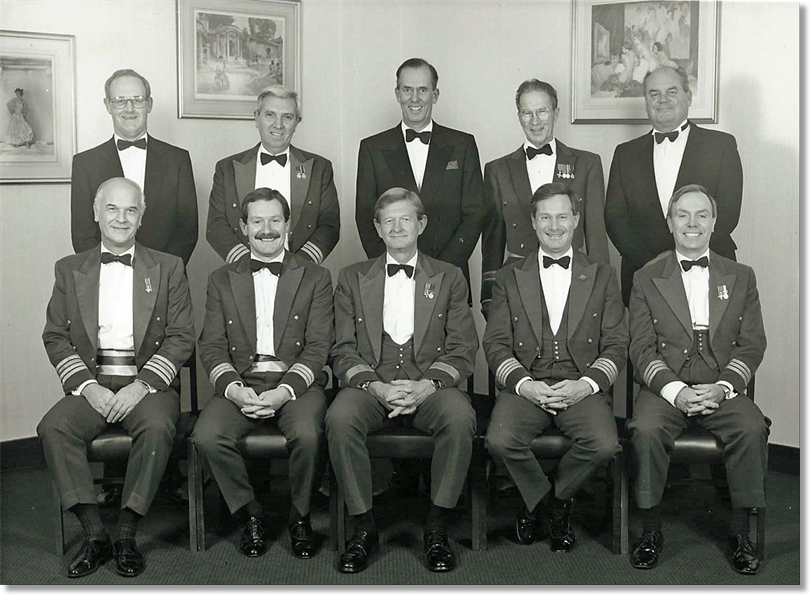
Back Row: Bryan Morgan - Chris Swaithes - John D Lambert - Mike Slade - David Gamble
Front Row: Bob Dixon - Barrie Hays - DMOVO - Stn Cdr RAF Lyneham - Richard Mighall
Front Row: Bob Dixon - Barrie Hays - DMOVO - Stn Cdr RAF Lyneham - Richard Mighall
I hope that you and your Grandad Chris find this interesting and that it prompts fond memories for him.
Kind regards,
Barrie Hay
Kind regards,
Barrie Hay

From: Hayden Gouman, Burnham
Subject: Ice Compacter to a C17 RNZAF
Subject: Ice Compacter to a C17 RNZAF

The heaviest single piece of freight that has ever gone through the Harewood Terminal Team (HTT), which we prepared and loaded on the C17 today ready for the next ice flight (November 3rd).
The newly made airfield compactor (first of three, the other two are not going to be as large).
Total Weight = 87,000 lbs, Height =120", used a 20' air drop platform for transportation, had 2 x stacks of plywood for shoring to spread the load to stay within roller limits and PSI limits. Was tricky but we got it on and she's all chained in awaiting her departure.
The newly made airfield compactor (first of three, the other two are not going to be as large).
Total Weight = 87,000 lbs, Height =120", used a 20' air drop platform for transportation, had 2 x stacks of plywood for shoring to spread the load to stay within roller limits and PSI limits. Was tricky but we got it on and she's all chained in awaiting her departure.
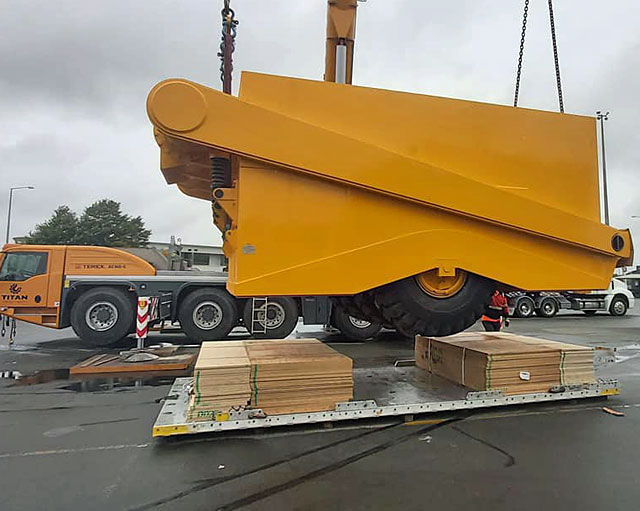
Footnote from Brian Lay: Harewood Terminal Team are part of the annual operation called “Operation Deep Freeze” which supports all the ice flights to Antarctica between Oct-Mar every year. Basically the team are made up of Air Movers from the RNZAF and 5 Movements Company people from the NZ Army.
The Compacter was loaded onto the C-17 at the HTT base of Christchurch NZ which is where all ice flights depart from and are supported by Christchurch Air Movements which also form most of the HTT. This base handles all the larger and heavy loads plus all passenger handling as well to the Ice. They do some amazing loads and the staff are regarded as the experts when it comes to oversize type cargo and are very good at what they do.
Brian
The Compacter was loaded onto the C-17 at the HTT base of Christchurch NZ which is where all ice flights depart from and are supported by Christchurch Air Movements which also form most of the HTT. This base handles all the larger and heavy loads plus all passenger handling as well to the Ice. They do some amazing loads and the staff are regarded as the experts when it comes to oversize type cargo and are very good at what they do.
Brian

From: Mike Vern Lefebvre, Burton, NB
Subject: Re: Helicopter delivered in time for fire season
Subject: Re: Helicopter delivered in time for fire season
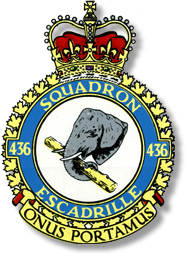
Evening Tony,
Regarding the story of the helicopter delivery in the last issue; I am so happy to hear the Australian Air Force was able to assist the State Base Emergency Services by transporting a Bell 412 Helicopter for the NSW Rural Fire Service. I had somewhat of a different experience with a Bell helicopter delivery.
On 30 March 1971, returning home with an empty C130E from Kingston, Jamaica, the Ops Officer was approached to assist the Jamaican Forces in transporting a Bell helicopter back to the Bell factory in Florida for servicing.
Of course we can help...
Regarding the story of the helicopter delivery in the last issue; I am so happy to hear the Australian Air Force was able to assist the State Base Emergency Services by transporting a Bell 412 Helicopter for the NSW Rural Fire Service. I had somewhat of a different experience with a Bell helicopter delivery.
On 30 March 1971, returning home with an empty C130E from Kingston, Jamaica, the Ops Officer was approached to assist the Jamaican Forces in transporting a Bell helicopter back to the Bell factory in Florida for servicing.
Of course we can help...
We took the "Butterfly" to Florida, flying the shoreline looking for the said airport (Opa Locka, Miami) - looking for a number on a runway - airport after airport. Finally, we landed at what we thought was the right place.
After landing, the conversation with the tower seemed to indicate that we had missed our destination by three minutes (short or long). The Aircraft Commander, Capt Jeff Brace, asked me, the Loady, "What’s our weight?" to which I answered and the tower informed us that we were too heavy for our intended airport.
We parked near an ATCO trailer around the corner and walked in to meet the custom authorities. We presented our delivery orders and company to be contacted, to which the customs agent's response was, "Are you a bonded carrier?’’ Capt Brace, with one of those are you f*cking crazy? looks, answered ‘’No.’’
The response was immediate. The Customs Officer said, "Your aircraft is confiscated!"
Capt Brace went to the pay phone; called Air Transport Command and informed them that he had just lost an aircraft.
Bell Helicopter posted the bond after what seemed to be hours and we were able to fly home very much relieved.
Mike Vern Lefebvre - 436 Sqn forever!
After landing, the conversation with the tower seemed to indicate that we had missed our destination by three minutes (short or long). The Aircraft Commander, Capt Jeff Brace, asked me, the Loady, "What’s our weight?" to which I answered and the tower informed us that we were too heavy for our intended airport.
We parked near an ATCO trailer around the corner and walked in to meet the custom authorities. We presented our delivery orders and company to be contacted, to which the customs agent's response was, "Are you a bonded carrier?’’ Capt Brace, with one of those are you f*cking crazy? looks, answered ‘’No.’’
The response was immediate. The Customs Officer said, "Your aircraft is confiscated!"
Capt Brace went to the pay phone; called Air Transport Command and informed them that he had just lost an aircraft.
Bell Helicopter posted the bond after what seemed to be hours and we were able to fly home very much relieved.
Mike Vern Lefebvre - 436 Sqn forever!

Video - RAAF trials safe airdrops of fodder
Cattle stranded by floodwaters may soon receive help from above, thanks to airdrop trials at RAAF Base Richmond. Air Mobility Training and Development Unit (AMTDU) is clearing a new method of delivering fodder using C-130 Hercules and C-27J Spartan transport aircraft.
It’s a safer method of performing a role last conducted by Air Force in the 1980s and '90s, according to Commanding Officer of AMTDU Wing Commander Cameron Clark. “The new method involves constructing a frangible box around the fodder, reducing the risk from foreign object debris damage to the aircraft,” Wing Commander Clark said. “Constructing this load needed easily acquired materials that would not injure animals if ingested and the fodder needed to be disseminated on the ground without humans.”
The task of finding a new fodder delivery method was handed down to AMTDU after the 2019-2020 high-risk weather season. When the role was historically performed by RAAF aircraft, the fodder bundles were left uncovered inside the cargo bay and pushed off the ramp over the drop zone. “Because the old method involved uncovered bundles of fodder, it presented a hazard with dust and fibre accumulating inside the aircraft following the drop,” Wing Commander Clark said. “The debris would accumulate everywhere – under floors and inside avionics boxes and our maintenance teams were still finding it months after the drops.”
Each fodder bundle weighs about 160 kilograms.
The solution to the problem is either to have the fodder fall apart in the sky or to break upon impact with the ground. To reduce the debris risk, AMTDU wrapped the fodder in available cardboard and wooden skid boards, which are commonly used in the creation of airdrop loads. Initial trials were conducted in late August at the nearby Londonderry Drop Zone in Sydney’s north-west. This load could be constructed quickly, but it would break apart almost immediately it hit the airstream at more than 150 km/h. “This initial version was suitable for a limited clearance, but it was starting to come apart too close to the aircraft,” Wing Commander Clark said. “The decision was made to build a ‘Version 1.1’ load using the lessons learned from that trial to expand the clearance envelope.”
Warrant Officer Class 2 Joe Campbell, a Project Officer with AMTDU, said cattle needed to be able to eat the fodder without people being at the drop zone to unpack the load. “The solution to the problem is either to have the fodder fall apart in the sky or to break upon impact,” Warrant Officer Campbell said. “We chose to break it on the ground, as history has proven the hay flies back into the aircraft if it is designed to fall apart in the air.”
All loads carried on Defence aircraft need to be designed so they can withstand violent or sudden movements in-flight while remaining restrained to the cargo floor. Normal airdrop loads would use parachutes, however, they were not employed on fodder drops because of the risk of cattle either ingesting or becoming caught in the cordage. The fodder drop does require sufficient clear land for us to mark a drop zone so that we didn’t harm the livestock we’re there to help.
The Version 1.1 box was built as a cube, allowing it to tumble more evenly through the air. “The solution uses no cordage, as cordage would be hard to consume by the cattle,” Warrant Officer Campbell said. “The straps that normally hold the bales together are also removed and we make the load strong enough to survive the required flight regimes including freefall. We were able to use in-service cardboard boxes reinforced with edge protectors.”
Commander of Air Mobility Group, Air Commodore Carl Newman, said the fodder drop capability provided Air Force with another means of supporting whole-of-government disaster relief operations. “The fodder drop does require sufficient clear land for us to mark a drop zone so that we didn’t harm the livestock we’re there to help,” Air Commodore Newman said. “However, this role allows us to conduct fodder drops when cattle had no other means of being reached in a timely manner, either by land or air resupply.”
Air Force has demonstrated other methods of how it can support stranded cattle and other people in need in recent disaster relief operations. During the 2019 floods in Central Queensland, it delivered fuel bladders to regional airports so helicopters could carry fodder to stranded cattle.
news.defence.gov.au
It’s a safer method of performing a role last conducted by Air Force in the 1980s and '90s, according to Commanding Officer of AMTDU Wing Commander Cameron Clark. “The new method involves constructing a frangible box around the fodder, reducing the risk from foreign object debris damage to the aircraft,” Wing Commander Clark said. “Constructing this load needed easily acquired materials that would not injure animals if ingested and the fodder needed to be disseminated on the ground without humans.”
The task of finding a new fodder delivery method was handed down to AMTDU after the 2019-2020 high-risk weather season. When the role was historically performed by RAAF aircraft, the fodder bundles were left uncovered inside the cargo bay and pushed off the ramp over the drop zone. “Because the old method involved uncovered bundles of fodder, it presented a hazard with dust and fibre accumulating inside the aircraft following the drop,” Wing Commander Clark said. “The debris would accumulate everywhere – under floors and inside avionics boxes and our maintenance teams were still finding it months after the drops.”
Each fodder bundle weighs about 160 kilograms.
The solution to the problem is either to have the fodder fall apart in the sky or to break upon impact with the ground. To reduce the debris risk, AMTDU wrapped the fodder in available cardboard and wooden skid boards, which are commonly used in the creation of airdrop loads. Initial trials were conducted in late August at the nearby Londonderry Drop Zone in Sydney’s north-west. This load could be constructed quickly, but it would break apart almost immediately it hit the airstream at more than 150 km/h. “This initial version was suitable for a limited clearance, but it was starting to come apart too close to the aircraft,” Wing Commander Clark said. “The decision was made to build a ‘Version 1.1’ load using the lessons learned from that trial to expand the clearance envelope.”
Warrant Officer Class 2 Joe Campbell, a Project Officer with AMTDU, said cattle needed to be able to eat the fodder without people being at the drop zone to unpack the load. “The solution to the problem is either to have the fodder fall apart in the sky or to break upon impact,” Warrant Officer Campbell said. “We chose to break it on the ground, as history has proven the hay flies back into the aircraft if it is designed to fall apart in the air.”
All loads carried on Defence aircraft need to be designed so they can withstand violent or sudden movements in-flight while remaining restrained to the cargo floor. Normal airdrop loads would use parachutes, however, they were not employed on fodder drops because of the risk of cattle either ingesting or becoming caught in the cordage. The fodder drop does require sufficient clear land for us to mark a drop zone so that we didn’t harm the livestock we’re there to help.
The Version 1.1 box was built as a cube, allowing it to tumble more evenly through the air. “The solution uses no cordage, as cordage would be hard to consume by the cattle,” Warrant Officer Campbell said. “The straps that normally hold the bales together are also removed and we make the load strong enough to survive the required flight regimes including freefall. We were able to use in-service cardboard boxes reinforced with edge protectors.”
Commander of Air Mobility Group, Air Commodore Carl Newman, said the fodder drop capability provided Air Force with another means of supporting whole-of-government disaster relief operations. “The fodder drop does require sufficient clear land for us to mark a drop zone so that we didn’t harm the livestock we’re there to help,” Air Commodore Newman said. “However, this role allows us to conduct fodder drops when cattle had no other means of being reached in a timely manner, either by land or air resupply.”
Air Force has demonstrated other methods of how it can support stranded cattle and other people in need in recent disaster relief operations. During the 2019 floods in Central Queensland, it delivered fuel bladders to regional airports so helicopters could carry fodder to stranded cattle.
news.defence.gov.au

From: William Andrew, Henlow, Beds
Subject: Lockdown Special VII - Remembrance
Tony,
A very apt topic at this time of year. I was able to pay my respects on behalf of the armed forces and RAF Henlow by attending the Bedfordshire Remembrance Service where I was given the opportunity to lay a wreath. I also laid a wreath in our Station Church shortly before 11am on the 11th to mark those who paid the ultimate sacrifice.
RAF Henlow is steeped in history as it is one of the original RAF Stations. The first Station Commander took post in 1918. During WWII, Henlow was the largest aircraft maintenance unit in the country where it serviced and built aircraft, the most notable being the Hurricane. 1,077 Hurricanes were shipped to the UK and RAF Henlow rebuilt, modified and tested 1,004 of them. It was a privilege and an honour to represent the RAF in Remembrance.
With Regards,
Will Andrew
Subject: Lockdown Special VII - Remembrance
Tony,
A very apt topic at this time of year. I was able to pay my respects on behalf of the armed forces and RAF Henlow by attending the Bedfordshire Remembrance Service where I was given the opportunity to lay a wreath. I also laid a wreath in our Station Church shortly before 11am on the 11th to mark those who paid the ultimate sacrifice.
RAF Henlow is steeped in history as it is one of the original RAF Stations. The first Station Commander took post in 1918. During WWII, Henlow was the largest aircraft maintenance unit in the country where it serviced and built aircraft, the most notable being the Hurricane. 1,077 Hurricanes were shipped to the UK and RAF Henlow rebuilt, modified and tested 1,004 of them. It was a privilege and an honour to represent the RAF in Remembrance.
With Regards,
Will Andrew
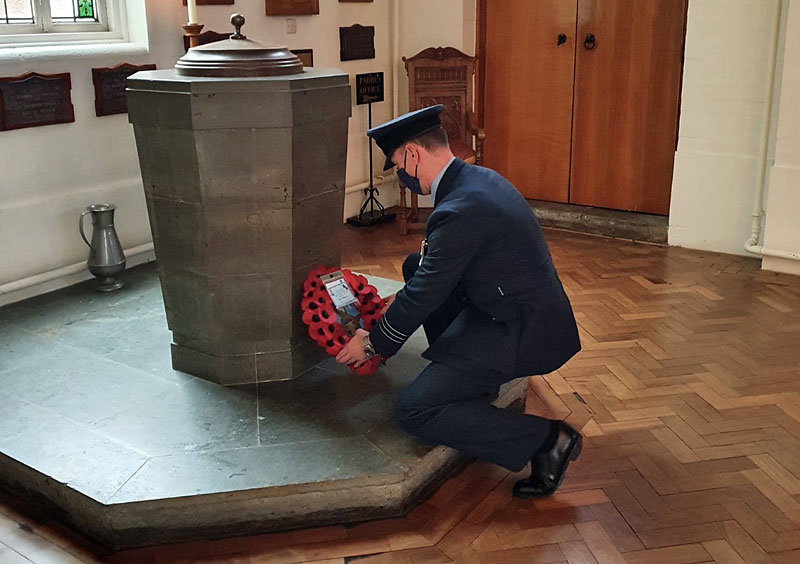

From: Richard Lloyd, Dunfermline, Fife
Subject: Remembrance 2020
Last year, 6 months after we’d moved to Dunfermline, we decided to attend the Remembrance ceremony at the WWII memorial here. I suppose there must have been about 500 people there.
This year, I decided that I would pay my respects at 1100 on the 11/11 on my own, despite public warnings about not gathering in large numbers. On the day a very good, small, British Legion pipe band played briefly before and after the 2 minutes silence. There were about 50 of us, properly distanced.
The picture is of me at York Minster for the 50th Anniversary of leaving Aden. I’ve not changed since then!
Cheers! Richard
Subject: Remembrance 2020
Last year, 6 months after we’d moved to Dunfermline, we decided to attend the Remembrance ceremony at the WWII memorial here. I suppose there must have been about 500 people there.
This year, I decided that I would pay my respects at 1100 on the 11/11 on my own, despite public warnings about not gathering in large numbers. On the day a very good, small, British Legion pipe band played briefly before and after the 2 minutes silence. There were about 50 of us, properly distanced.
The picture is of me at York Minster for the 50th Anniversary of leaving Aden. I’ve not changed since then!
Cheers! Richard
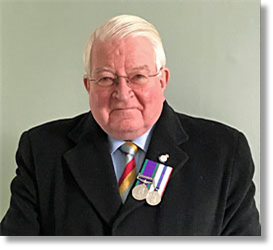

From: Keri Eynon, Thatcham, Berks
Subject: Lockdown Special VII - Remembrance
Hi Tony,
What a change 12 months has brought. Last year, 2019, our market place in Newbury was, as usual, packed with people attending the Remembrance Service and witnessing the parade of not just veterans and Royal British Legion but the numerous organisations taking part. In all an estimated 3,000+ attended, this being the norm apart from 2018 when over 6,000 attended.
This year there were 16 designated representatives to lay wreaths with others socially distanced to make up the "safe number" who could attend (see the attached photo). There was no church service and once the wreaths had been laid there was the final prayer, National Anthem (unsung) Blessing and dismissal with people dispersing from the memorial before barriers were moved and anyone else could lay a wreath etc after 11.30. A very strange, perhaps even eerie experience yet also a poignant one. At least we were able to hold the service and remember those who gave their all for us.
Reverend Keri Eynon
Subject: Lockdown Special VII - Remembrance
Hi Tony,
What a change 12 months has brought. Last year, 2019, our market place in Newbury was, as usual, packed with people attending the Remembrance Service and witnessing the parade of not just veterans and Royal British Legion but the numerous organisations taking part. In all an estimated 3,000+ attended, this being the norm apart from 2018 when over 6,000 attended.
This year there were 16 designated representatives to lay wreaths with others socially distanced to make up the "safe number" who could attend (see the attached photo). There was no church service and once the wreaths had been laid there was the final prayer, National Anthem (unsung) Blessing and dismissal with people dispersing from the memorial before barriers were moved and anyone else could lay a wreath etc after 11.30. A very strange, perhaps even eerie experience yet also a poignant one. At least we were able to hold the service and remember those who gave their all for us.
Reverend Keri Eynon
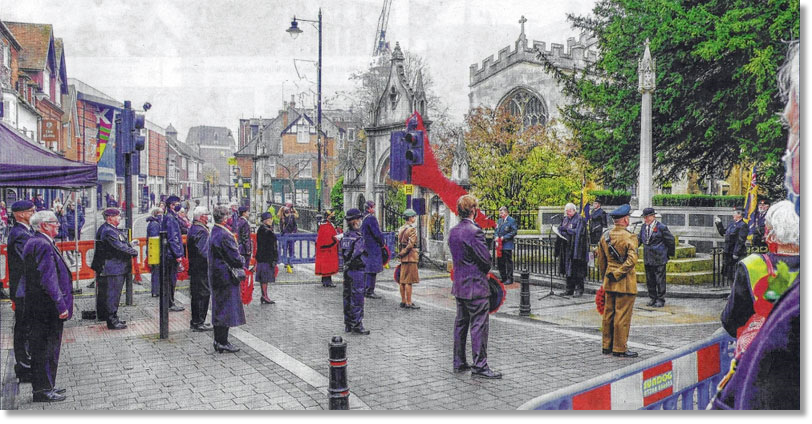

From: Barry Tappenden, Shortstown, Beds
Subject: Lockdown Special VII - Remembrance
Good evening Tony,
Remembrance Day here in Bedford was very restricted due to the COVID 19, but I was fortunate enough to attend our Remembrance and Armistice “gathering” and do live broadcasts with Hospital Radio Bedford (HRB). Although the parade was cancelled the local dignitaries, Lord Lt, MP, High Sheriff and Mayor were allowed to lay wreaths after a short service.
In the photograph is Laura Taylor, another volunteer from HRB, and together we managed to broadcast to the patients and staff at the Hospital and also through the net, reaching all the other hundreds of people wanting to pay their respects on two very special occasions.
Best regards, Barry
Subject: Lockdown Special VII - Remembrance
Good evening Tony,
Remembrance Day here in Bedford was very restricted due to the COVID 19, but I was fortunate enough to attend our Remembrance and Armistice “gathering” and do live broadcasts with Hospital Radio Bedford (HRB). Although the parade was cancelled the local dignitaries, Lord Lt, MP, High Sheriff and Mayor were allowed to lay wreaths after a short service.
In the photograph is Laura Taylor, another volunteer from HRB, and together we managed to broadcast to the patients and staff at the Hospital and also through the net, reaching all the other hundreds of people wanting to pay their respects on two very special occasions.
Best regards, Barry
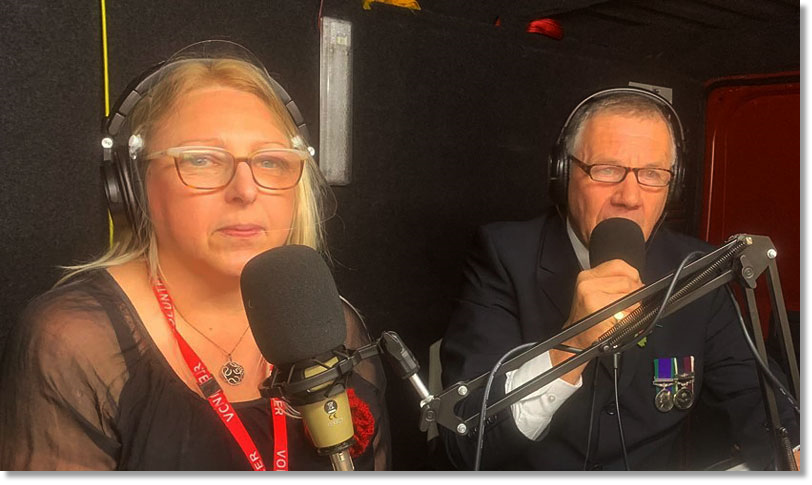

From: Stephen Bird, Chester
Subject: Lockdown Special VII - Remembrance
Good day Tony,
Firstly I send my regards to all fellow Movers, both serving and retired like me.
Remembrance for me this year was strange to say the least, but also very sad this year. Myself and my wife recently lost a very very close friend of ours to cancer after a very short illness. Christine Curran, whom some of this group will remember as Shaun Curran's (ex-Mover) wife, she worked in PSA at Brize Norton in the early 90's, we have been friends for 30/40 years respectively.
In addition to this we have lost a good number of fellow movers to illness in the last 12 months and sadly suicide, some of those to depart were great motivators to myself when I was a young mover learning the ropes.
Subject: Lockdown Special VII - Remembrance
Good day Tony,
Firstly I send my regards to all fellow Movers, both serving and retired like me.
Remembrance for me this year was strange to say the least, but also very sad this year. Myself and my wife recently lost a very very close friend of ours to cancer after a very short illness. Christine Curran, whom some of this group will remember as Shaun Curran's (ex-Mover) wife, she worked in PSA at Brize Norton in the early 90's, we have been friends for 30/40 years respectively.
In addition to this we have lost a good number of fellow movers to illness in the last 12 months and sadly suicide, some of those to depart were great motivators to myself when I was a young mover learning the ropes.
So, on the back of this, I was determined to remember them all; I decided to take my dog for a walk on Sunday the 8th and by some strange coincidence I ended up at my local point of remembrance in Warrington, along with approx 200 rule breakers, at about 1100, which is now subject of a Police investigation. So I apologise for my outfit of shorts and trainers but I was there, and this was me remembering under cover!
On the following Wednesday (Armistice Day), I lowered the flag at my place of work, the University of Chester. I have carried this out for the last 19 years without fail. Pre-Covid, we always had the Police parading along with a pretty good turnout amongst the general staff, however this year due to restrictions I was the only one present.
I have attached an image which was taken the week prior when the University filmed a virtual Remembrance for later broadcast.
Anyway, all the best to all, and hopefully next year we can remember as a group at the Cenotaph in London, and get back to marching out of step in the good movements tradition.
On the following Wednesday (Armistice Day), I lowered the flag at my place of work, the University of Chester. I have carried this out for the last 19 years without fail. Pre-Covid, we always had the Police parading along with a pretty good turnout amongst the general staff, however this year due to restrictions I was the only one present.
I have attached an image which was taken the week prior when the University filmed a virtual Remembrance for later broadcast.
Anyway, all the best to all, and hopefully next year we can remember as a group at the Cenotaph in London, and get back to marching out of step in the good movements tradition.
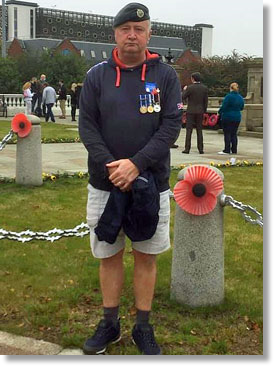
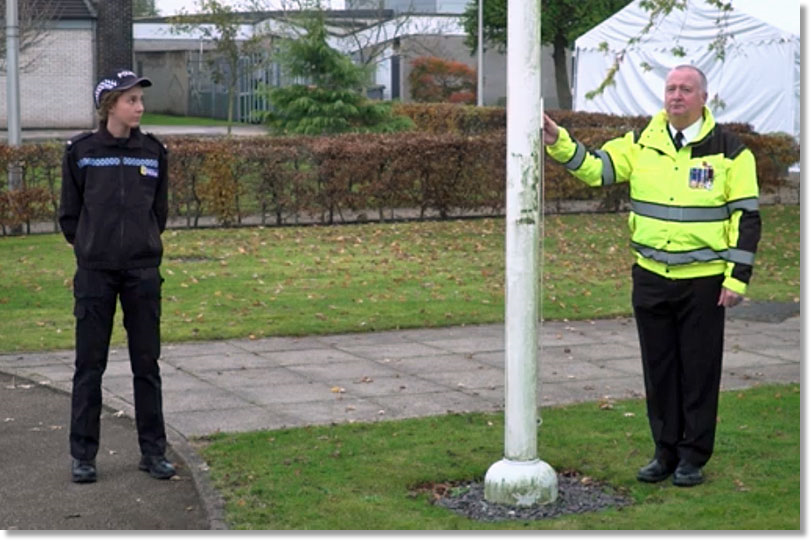
Regards,
Stephen Bird
Head Porter
University of Chester
Stephen Bird
Head Porter
University of Chester

From: Nev Whitham, Preston, Lancs
Subject: Lockdown Special VII - Remembrance
Hi Tony,
Representing Sir Lindsay Hoyle, Speaker of the House of Commons, laying a wreath in the Ward of Clayton & Whittle le Woods at the War Memorial on Sunday, 8th November, I was always going to turn up on Sunday to do the right thing. These are very strange times indeed.
Added poignancy was that when I arrived at the War Memorial, the bugle player was sat on a nearby bench, wearing his face covering. I thanked him for turning up, mentioning that the events had virtually all been cancelled, including this one to which he replied, "I have been coming here for over 60 odd years. I came here today in case anybody turned up." What a hero! Lest We Forget.
Cheers,
Nev
Subject: Lockdown Special VII - Remembrance
Hi Tony,
Representing Sir Lindsay Hoyle, Speaker of the House of Commons, laying a wreath in the Ward of Clayton & Whittle le Woods at the War Memorial on Sunday, 8th November, I was always going to turn up on Sunday to do the right thing. These are very strange times indeed.
Added poignancy was that when I arrived at the War Memorial, the bugle player was sat on a nearby bench, wearing his face covering. I thanked him for turning up, mentioning that the events had virtually all been cancelled, including this one to which he replied, "I have been coming here for over 60 odd years. I came here today in case anybody turned up." What a hero! Lest We Forget.
Cheers,
Nev
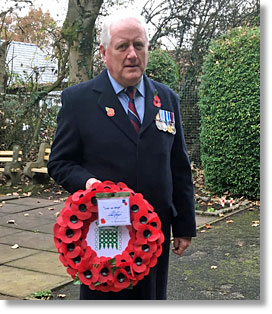

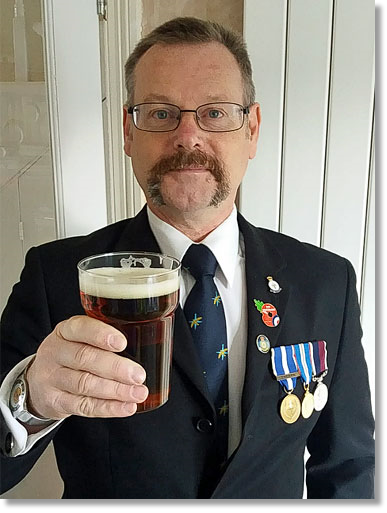
Gary Farndale, Torpoint, Cornwall
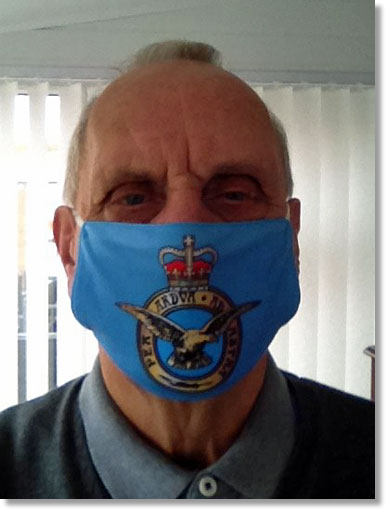
Stan Seggar, Sheffield
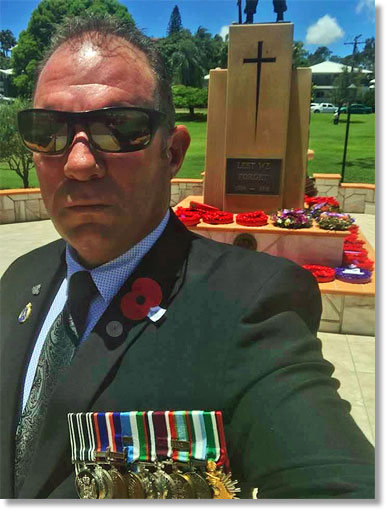
Jon Felton, Gladstone, QLD
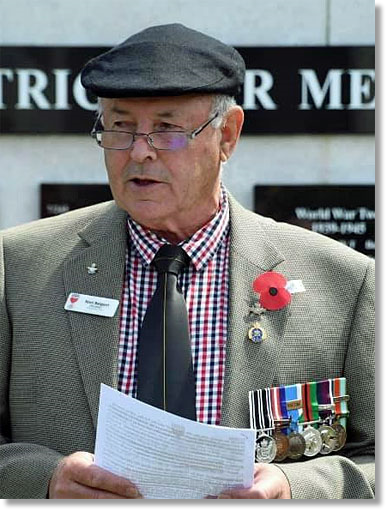
Budgie Baigent, Takaka, Tasman
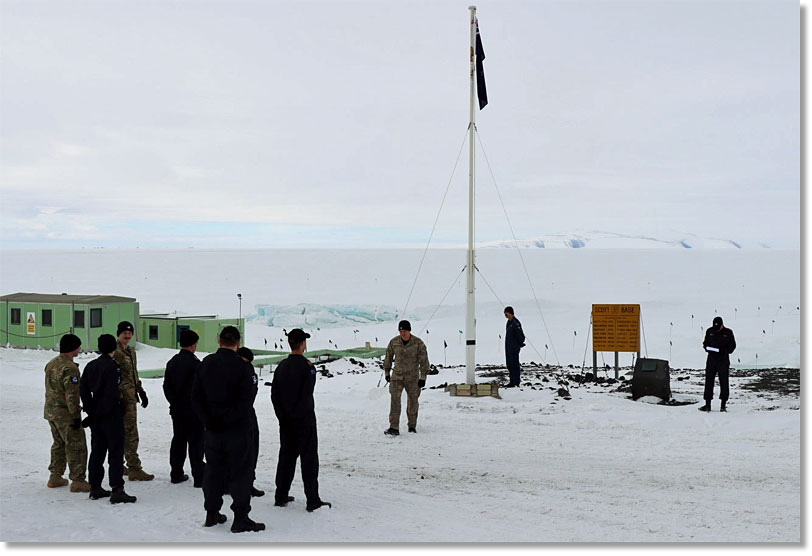
Jae Ekman, Scott Base, Antarctica

From: David Forsyth, St Hilaire de Riez
Subject: Memorable Remembrance Sundays
Hello Tony,
This year’s atypical Remembrance Sunday made me think of others I have seen. These stretch from schooldays at the small Parish kirk in Lintrathen, throughout my RAF life in various places and on into more recent years at the small war memorial in Le Langon in Vendée. Most were predictable, routine events but four episodes stand out as memorable.
Subject: Memorable Remembrance Sundays
Hello Tony,
This year’s atypical Remembrance Sunday made me think of others I have seen. These stretch from schooldays at the small Parish kirk in Lintrathen, throughout my RAF life in various places and on into more recent years at the small war memorial in Le Langon in Vendée. Most were predictable, routine events but four episodes stand out as memorable.
The Height of Discomfort - The first was in the early 70s when I was a Flight Lieutenant on the HQSTC staff at High Wycombe.
The AoC in C had a commitment away from the area. This meant that the duty of participating in the High Wycombe Ceremony and Service and taking the salute at the Parade led by a RAF High Wycombe contingent fell to the AoA.
He rejoiced in the rather Victorian name of Air Vice Marshal Cresswell Montague Clementi, CB CBE *, a WW2 veteran. A tall, thin, distinguished, quiet and rather reserved man, he seemed more like an academic than a WW2 Bomber pilot.
He needed an ADC for the day - a role for which I was “volunteered”. Though I never knew why I was nobbled, I imagine it was because I had been recommended for ADC posts and was about the same height and build as he.
The AoC in C had a commitment away from the area. This meant that the duty of participating in the High Wycombe Ceremony and Service and taking the salute at the Parade led by a RAF High Wycombe contingent fell to the AoA.
He rejoiced in the rather Victorian name of Air Vice Marshal Cresswell Montague Clementi, CB CBE *, a WW2 veteran. A tall, thin, distinguished, quiet and rather reserved man, he seemed more like an academic than a WW2 Bomber pilot.
He needed an ADC for the day - a role for which I was “volunteered”. Though I never knew why I was nobbled, I imagine it was because I had been recommended for ADC posts and was about the same height and build as he.
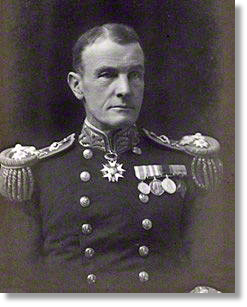
All went well through the wreath-laying, the Church Service and the Parade. At the end, close to lunchtime, he was prevailed upon to go to the RAFA Headquarters in High Wycombe for a drink. By the time the Air Marshal had taken his leave of the various dignitaries at the saluting dais, time was marching on.
The staff car duly arrived at the RAFA HQ with the Air Marshal and Mrs Clementi in the rear and me beside the driver. We were clearly a good half hour behind everyone else, and it was to prove an important if unfortunate half-hour.
The staff car duly arrived at the RAFA HQ with the Air Marshal and Mrs Clementi in the rear and me beside the driver. We were clearly a good half hour behind everyone else, and it was to prove an important if unfortunate half-hour.
The party we joined was in full flow. Picture the scene – several dozen folks enjoying themselves and clearly on drink 2 or 3, wives (mostly) dancing to piped music, almost all present were smoking (this is the early 70s). There were insufficient seats so several wives were seated on the knees of other wives. It was a very jolly gathering but very noisy and smoke-filled.
The Air Marshal blanched, this was clearly way outside what today we’d call his comfort zone. For the sake of appearances, he and his lady accepted a drink and downed it fairly quickly in order to take their leave as soon as decency allowed-which was not very long at all.
(*Son, David Clementi, is the much beleaguered Chair of the Board of the BBC.)
The Air Marshal blanched, this was clearly way outside what today we’d call his comfort zone. For the sake of appearances, he and his lady accepted a drink and downed it fairly quickly in order to take their leave as soon as decency allowed-which was not very long at all.
(*Son, David Clementi, is the much beleaguered Chair of the Board of the BBC.)
Dancing Hooves - The War Memorial in Harrogate is just up the slope from Betty’s Tea Rooms, opposite Lloyds Bank. The road which goes around the Memorial has a pronounced side-ways slope. One November in the late 1970s had seen severe frosts and very cold days meaning the frosts did not lift.
A contingent from MoD Harrogate was drawn up in 2 or 3 ranks accompanied by US personnel from Menwith Hill, and British Army and Royal Navy contingents from Pennypot Army Apprentices College and Forest Moor respectively. It was so cold that most of us were in great-coats but still frozen to the marrow. At one point, a North Yorkshire Constabulary mounted policeman from Knaresborough advanced on a magnificent horse which seemed to tower over us.
A contingent from MoD Harrogate was drawn up in 2 or 3 ranks accompanied by US personnel from Menwith Hill, and British Army and Royal Navy contingents from Pennypot Army Apprentices College and Forest Moor respectively. It was so cold that most of us were in great-coats but still frozen to the marrow. At one point, a North Yorkshire Constabulary mounted policeman from Knaresborough advanced on a magnificent horse which seemed to tower over us.
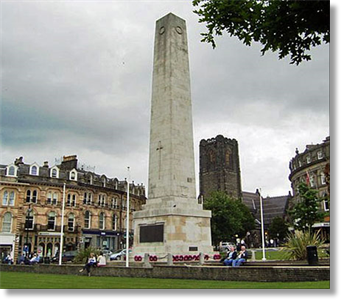
As it went around the lower side of the War Memorial on an unsalted, frozen roadway which sloped downwards quite severely, the inevitable happened. First one hoof slid, then another, then it seemed, all four hooves were in the air as the spooked horse fought to restore its balance. It could only have been a second or two at most but it seemed time stood still. The horse was in suspended animation, cartoon-like, for an age. Fortunately, its sense of self-preservation and the rider’s equestrian skill meant that the horse did not fall – but it was a close-run thing.
I was unsure whether the expression on the face of the horse or its rider showed the greater relief.
I was unsure whether the expression on the face of the horse or its rider showed the greater relief.
An Unwelcoming Scouse Welcome.
RAF Sealand had to provide two different contingents for Remembrance Ceremonies: the Station Commander took one to Chester and the senior Wing Commander, took another to Liverpool. In the latter half of the 80s, that dubious “privilege” fell to me.
This was at the height of the Derek Hatton period as influential Deputy Leader of the Council. Hatton you may recall was a Trotskyist and anti-establishment figure who was wielding power and influence out of all proportion to his true role as Deputy Leader.
One of the consequences was that on parade we were made to feel as welcome as a pork pie in a synagogue. The pernicious environment in Liverpool created by Hatton and his Militant cronies meant that many of those who might be expected to attend decided to stay away. A small number of eggs were thrown at our airmen, fortunately all missing.
RAF Sealand had to provide two different contingents for Remembrance Ceremonies: the Station Commander took one to Chester and the senior Wing Commander, took another to Liverpool. In the latter half of the 80s, that dubious “privilege” fell to me.
This was at the height of the Derek Hatton period as influential Deputy Leader of the Council. Hatton you may recall was a Trotskyist and anti-establishment figure who was wielding power and influence out of all proportion to his true role as Deputy Leader.
One of the consequences was that on parade we were made to feel as welcome as a pork pie in a synagogue. The pernicious environment in Liverpool created by Hatton and his Militant cronies meant that many of those who might be expected to attend decided to stay away. A small number of eggs were thrown at our airmen, fortunately all missing.
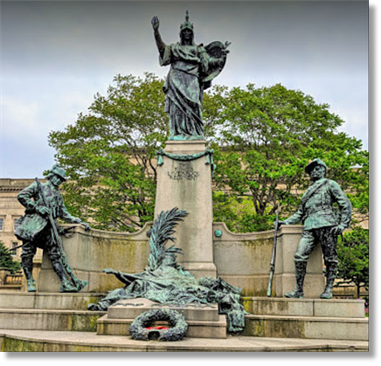
Worse was to come: as military we were denied the traditional welcome and cheering drink in the Council Chambers after the parade and had to watch the Hatton supporters enter the City Hall from which we were expressly excluded.
Fortunately the Territorial Army Regimental Association, the Liverpool-Scottish, took pity on us and led us up to their Regimental HQ for a couple of very welcome drams.
Fortunately the Territorial Army Regimental Association, the Liverpool-Scottish, took pity on us and led us up to their Regimental HQ for a couple of very welcome drams.
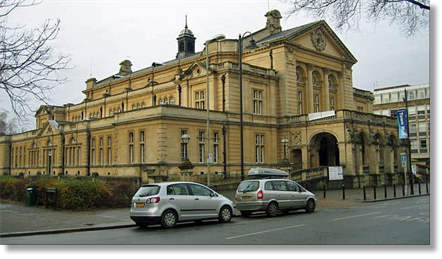
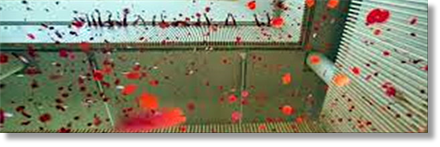
An Emotionally Charged Evening
My last anecdote is in total contrast to the first three. As Station Commander at Quedgeley, one of the representational duties I had to carry out was to play a small part, delivering a reading, at a Ceremony in the magnificent Cheltenham Town Hall.
A very well heeled, true blue Tory town, Cheltenham prided itself on its Ceremony on the Saturday evening prior to Remembrance Sunday. It was very much modelled on its cousin in the Albert Hall complete with military and other contingents, military bands with WW1 songs, a drum-head service and hymns. It closed with an Albert Hall-like cascade of poppy petals from nets in the ceiling onto the heads of those present.
Michèle and I were firstly taken aback by the fluff-fluff noise, louder and louder as time went on and the volume increased, as the petals descended. But we were then struck by the emotion created by the noise, the blood-red colour of the poppies on heads and shoulders and the symbolism of the poppies.
We had of course seen this at the Albert Hall on the “box” - but this mass descent of poppies was something else when experienced personally.
Truly memorable.
My last anecdote is in total contrast to the first three. As Station Commander at Quedgeley, one of the representational duties I had to carry out was to play a small part, delivering a reading, at a Ceremony in the magnificent Cheltenham Town Hall.
A very well heeled, true blue Tory town, Cheltenham prided itself on its Ceremony on the Saturday evening prior to Remembrance Sunday. It was very much modelled on its cousin in the Albert Hall complete with military and other contingents, military bands with WW1 songs, a drum-head service and hymns. It closed with an Albert Hall-like cascade of poppy petals from nets in the ceiling onto the heads of those present.
Michèle and I were firstly taken aback by the fluff-fluff noise, louder and louder as time went on and the volume increased, as the petals descended. But we were then struck by the emotion created by the noise, the blood-red colour of the poppies on heads and shoulders and the symbolism of the poppies.
We had of course seen this at the Albert Hall on the “box” - but this mass descent of poppies was something else when experienced personally.
Truly memorable.

From: Allan Mitchley, Rhyl, Denbigshire
Subject: Lockdown Special VII - Remembrance
Hi Tony,
This year attending remembrance day on behalf of the RAFA was very surreal. Very few veterans. No march past. A small number of dignitaries. It was an honour for me to attend as Branch Chairman on behalf of the RAFA and to pay my respects on this occasion. We hope that next year may be different and ex-movers can join together at the Cenotaph in London.
Standing on my right in the photograph is another member of the RAFA, Dusty Millar. He is in his eighties and was air traffic. My branch president is 95 and not able to attend and was at RAF Valley when Glen Miller landed there. He is like a father to me.
Off topic... it was sad to hear of the loss of Bruce Oram's wife Shirley. Bruce worked with my brother in Riyadh in 1969 and was my boss at Brize Norton.
Best regards, Allan and Kay.
Subject: Lockdown Special VII - Remembrance
Hi Tony,
This year attending remembrance day on behalf of the RAFA was very surreal. Very few veterans. No march past. A small number of dignitaries. It was an honour for me to attend as Branch Chairman on behalf of the RAFA and to pay my respects on this occasion. We hope that next year may be different and ex-movers can join together at the Cenotaph in London.
Standing on my right in the photograph is another member of the RAFA, Dusty Millar. He is in his eighties and was air traffic. My branch president is 95 and not able to attend and was at RAF Valley when Glen Miller landed there. He is like a father to me.
Off topic... it was sad to hear of the loss of Bruce Oram's wife Shirley. Bruce worked with my brother in Riyadh in 1969 and was my boss at Brize Norton.
Best regards, Allan and Kay.
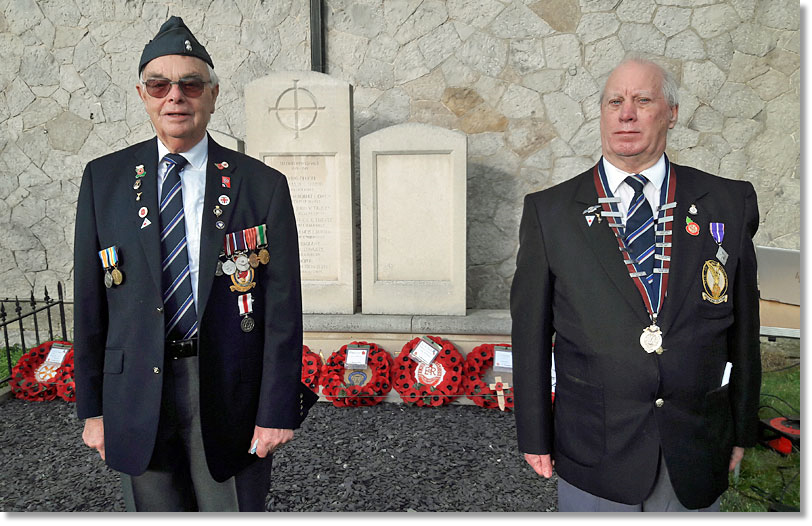

From: Michael V. O'Brien, Corinda, QLD
Subject: Lockdown Special VII - Remembrance
Thanks Tony, for your continued efforts with the newsletter.
A very quiet, but suitably observant, “Remembrance” for us on the NSW Shoalhaven coast, with most of maintaining the appropriate separation to reduce the spread of the Lurgi.
Ref “Movember”, seeing as how in my case every day now is a Saturday, except Sundays, it is also to be noted the the months also just seem to meld together, to the extent that my effort remains “in situ”, thus, here’s one “I prepared earlier”, as they say on TV, whilst assisting the Mongolian Infantry Battalion with their impending deployment to UNMISS (South Sudan) ...
To be honest, it was actually January 2012 ... and weren’t they in for a weather shock when they got to South Sudan!
Cop Ya, OBie
Subject: Lockdown Special VII - Remembrance
Thanks Tony, for your continued efforts with the newsletter.
A very quiet, but suitably observant, “Remembrance” for us on the NSW Shoalhaven coast, with most of maintaining the appropriate separation to reduce the spread of the Lurgi.
Ref “Movember”, seeing as how in my case every day now is a Saturday, except Sundays, it is also to be noted the the months also just seem to meld together, to the extent that my effort remains “in situ”, thus, here’s one “I prepared earlier”, as they say on TV, whilst assisting the Mongolian Infantry Battalion with their impending deployment to UNMISS (South Sudan) ...
To be honest, it was actually January 2012 ... and weren’t they in for a weather shock when they got to South Sudan!
Cop Ya, OBie
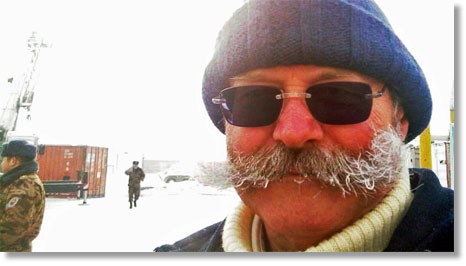
The Misadventures of Jarvo
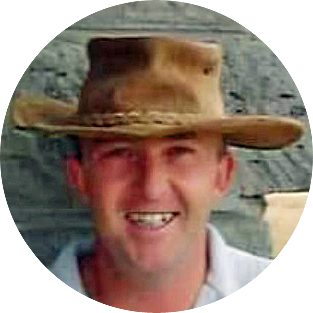
Kigali, Rwanda 24th Sept 2006
Episode 4: Jarvo meets someone with a
hairier back and fights for his reputation.
As I sat waiting in Kigali for news of a possible aircraft movement, I pondered the fact that it could be much worse, it could be Basra in Iraq again or even sodding Naples. Terry and I were struggling a little bit to keep ourselves entertained while the political wheels turned to allow the AU mission to be extended in Darfur. We resorted to eating and drinking a lot but the prices in the Kigali Novotel were brutal and we would surely have both run out of cash fairly sharply. Our efforts to find a cash machine to get some more money were proving futile so we were forced to live on what we had with us.
In an effort to cut costs we bumbled gleefully down the road one evening to the local Chinese restaurant. Luckily it was pretty gloomy inside so it looked OK, if a little seedy. However, as a bonus in the humidity, it was pretty much open to the elements so there was a good breeze through the place. As we perused the greasy and somewhat sticky menu, we got rather overexcited at the low prices compared with the hotel and ordered far too much food before having to weave our way back to the hotel for a nightcap. That French critic was right; there were definitely more prostitutes than clients in the bar. We sat down nervously at a secluded table and I immediately started to feel a bit dirty and even violated by the eyes fixed on us, mercifully we were left well alone. The next day I found out why. The waitress at breakfast put both of our meals on the same bill, I explained to her that we were not together but this only induced giggles, a knowing look and very odd nods to the other members of staff... they bloody thought we were gay. We reflected on the implications of this bombshell and decided that it had obvious advantages and disadvantages. It would keep the hopeful ladies away at least, so we decided to get on with life trying not to wear leather or matching clothes anymore, in public at least.
Throughout the following day I started to feel progressively rougher and rougher before the inevitable violent illness struck me, bloody Chinese food. Terry thought I was being a malingerer. Thankfully, twelve hours later it was all over and the re-supply airdrop of toilet paper was successfully utilised. I had always been renowned in the past for having something of an iron constitution even when filtering my drinking water from a river through a sock in Central Africa, but I was prone to certain tropical aliments, perks of the job I suppose. I have fought off suspected Cholera, took a Lemsip for that one, a bout of typhoid, defeated by an aspirin, but got stuck with malaria, the gift that keeps on giving.
I suffered the most horrendous side effects after my second Anthrax jab in Kuwait, I went loopy, I was hallucinating and in a right old state. It was an odd jab. We had to have three injections in total to be fully protected and different people would be affected in different ways by each one of them. The only other time I can remember my bowels letting me down was in Nepal. At the time, we were working from microwave towers along the Terai, the flattish area in the south of the country, at a place called Janakpur where there was a beautiful temple. Although hot and humid on the Terai, at the top of the tower there was a blissful breeze and a breathtaking view up to the Himalayas. The toilet facilities at our campsite at the base of the tower were somewhat basic to say the least, a hut with a hole in the ground. There was a pile of stones outside the door to the hut and I asked what they were for. Apparently you threw a few in before you entered to scare away the Cobras... nice.
In an effort to cut costs we bumbled gleefully down the road one evening to the local Chinese restaurant. Luckily it was pretty gloomy inside so it looked OK, if a little seedy. However, as a bonus in the humidity, it was pretty much open to the elements so there was a good breeze through the place. As we perused the greasy and somewhat sticky menu, we got rather overexcited at the low prices compared with the hotel and ordered far too much food before having to weave our way back to the hotel for a nightcap. That French critic was right; there were definitely more prostitutes than clients in the bar. We sat down nervously at a secluded table and I immediately started to feel a bit dirty and even violated by the eyes fixed on us, mercifully we were left well alone. The next day I found out why. The waitress at breakfast put both of our meals on the same bill, I explained to her that we were not together but this only induced giggles, a knowing look and very odd nods to the other members of staff... they bloody thought we were gay. We reflected on the implications of this bombshell and decided that it had obvious advantages and disadvantages. It would keep the hopeful ladies away at least, so we decided to get on with life trying not to wear leather or matching clothes anymore, in public at least.
Throughout the following day I started to feel progressively rougher and rougher before the inevitable violent illness struck me, bloody Chinese food. Terry thought I was being a malingerer. Thankfully, twelve hours later it was all over and the re-supply airdrop of toilet paper was successfully utilised. I had always been renowned in the past for having something of an iron constitution even when filtering my drinking water from a river through a sock in Central Africa, but I was prone to certain tropical aliments, perks of the job I suppose. I have fought off suspected Cholera, took a Lemsip for that one, a bout of typhoid, defeated by an aspirin, but got stuck with malaria, the gift that keeps on giving.
I suffered the most horrendous side effects after my second Anthrax jab in Kuwait, I went loopy, I was hallucinating and in a right old state. It was an odd jab. We had to have three injections in total to be fully protected and different people would be affected in different ways by each one of them. The only other time I can remember my bowels letting me down was in Nepal. At the time, we were working from microwave towers along the Terai, the flattish area in the south of the country, at a place called Janakpur where there was a beautiful temple. Although hot and humid on the Terai, at the top of the tower there was a blissful breeze and a breathtaking view up to the Himalayas. The toilet facilities at our campsite at the base of the tower were somewhat basic to say the least, a hut with a hole in the ground. There was a pile of stones outside the door to the hut and I asked what they were for. Apparently you threw a few in before you entered to scare away the Cobras... nice.
One day, I was about three quarters of the way up the three hundred or so rungs on the tower ladder when I heard the first threatening rumble and felt the first painful stomach cramp. I should have turned back then, but no, I pushed bravely on to the top of the tower where I immediately experienced a gut wrenching, explosive and rather smelly follow through. I was then forced at the behest of my working companion, to edge my way down the ladder, soaked in sweat, knees clenched and experiencing some rather unpleasant leakage. At the bottom I waddled through the usual crowd of onlookers, kicked open the toilet door, squatted and let my whole world disappear into the depths of the earth. As I at last allowed myself a smile of relief I heard a rustling noise in the dark recesses of the hut and realised that I had neglected to make use of the pile of stones outside. I shit myself again. What was worse and desperately embarrassing for me was not being able to clean myself up properly and having to shove my shorts and skiddies into the hole and limp bare chested with my t-shirt concealing my nether regions to my tent.
After a fitful night’s sleep in the Kigali Novotel as I fought off the stomach bug, I was feeling distinctly perkier and definitely a lot lighter the next day, so we went out to visit Steve’s wife Sarah and the kids down the road in Kimihruru. Sarah looked really well and little Jack was in fine form as he proceeded to run Terry ragged around the garden. Steve’s daughter Nusu, an orphan from the genocide, was very shy but very sweet and we took hundreds of photos of the kids to send to Steve in the Sudan. We then walked over to Bar Arada for more of our favourite goat kebabs and Mustig beers.
Friday night came along and it was definitely party night when you’re young and gay in Kigali, so out we went. We followed more of Steve’s excellent recommendations for bars around the town and ended up in the Cadillac club in the early hours of the morning where you could cut the body odour with a knife. It was a tad too steamy in there for us so we politely finished our beers and jumped into the sanctuary of Eddie's car and headed back to the hotel. The next morning and it felt like my age was definitely catching up with me. I laid by the pool with birds of prey circling menacingly overhead trying not to pass wind just in case of an accident, me, not the birds in case you were wondering. Terry looked surprisingly well to me but it turned out to be an elaborate façade, all we could do was lie and wait for the hangover to pass and ridicule the fat frenchies around the pool for some modicum of entertainment. I discovered much to my consternation and the obvious amusement of Terry, that I was actually saying things out loud that I patently shouldn’t have done, it seemed that I had lost control of my internal monologue, I vowed to work on that. Even when I did manage to keep the monologue to myself, I noticed my brain spoke in an outrageous German accent.
Sunday morning and I had planned to have a quiet day by the pool, perhaps a couple of shandies a bit later, maybe a bag of crisps (cheese and onion), and then definitely an early night. However, Terry was feeling much better and things went rapidly downhill from there. There was a hint of rain in the air so we sat at a table under a bamboo parasol and watched what was going on around the pool. There was a Ugandan bloke at a table next to us with the cutest twin two year old boys who he was trying to force into the pool obviously against their wishes. They resorted to standing and staring at the drunken white guys to get away from him.
Terry was on fine form, being a family guy from Intercourse, Alabama, or somewhere like that. He loved kids, had hundreds of his own, and they were drawn to him in the same way that they would watch Telletubbies for hours. One of the twins was firing a mock finger gun at Tel and he was ducking, diving and firing back, when his plastic chair collapsed under him. He crumpled to the ground in a flurry of arms and legs and head butted the poor child square on the forehead knocking him flat on his arse. I had beer coming out of my nose I was laughing so much, which frankly didn’t help. We apologised profusely to the gentleman and offered to pay for the child’s plastic surgery and everything eventually calmed down. Our reputation could not possibly have got any worse; not only were we single-handedly decimating the Rwandan goat population, we were now child beaters as well as being gay.
After a fitful night’s sleep in the Kigali Novotel as I fought off the stomach bug, I was feeling distinctly perkier and definitely a lot lighter the next day, so we went out to visit Steve’s wife Sarah and the kids down the road in Kimihruru. Sarah looked really well and little Jack was in fine form as he proceeded to run Terry ragged around the garden. Steve’s daughter Nusu, an orphan from the genocide, was very shy but very sweet and we took hundreds of photos of the kids to send to Steve in the Sudan. We then walked over to Bar Arada for more of our favourite goat kebabs and Mustig beers.
Friday night came along and it was definitely party night when you’re young and gay in Kigali, so out we went. We followed more of Steve’s excellent recommendations for bars around the town and ended up in the Cadillac club in the early hours of the morning where you could cut the body odour with a knife. It was a tad too steamy in there for us so we politely finished our beers and jumped into the sanctuary of Eddie's car and headed back to the hotel. The next morning and it felt like my age was definitely catching up with me. I laid by the pool with birds of prey circling menacingly overhead trying not to pass wind just in case of an accident, me, not the birds in case you were wondering. Terry looked surprisingly well to me but it turned out to be an elaborate façade, all we could do was lie and wait for the hangover to pass and ridicule the fat frenchies around the pool for some modicum of entertainment. I discovered much to my consternation and the obvious amusement of Terry, that I was actually saying things out loud that I patently shouldn’t have done, it seemed that I had lost control of my internal monologue, I vowed to work on that. Even when I did manage to keep the monologue to myself, I noticed my brain spoke in an outrageous German accent.
Sunday morning and I had planned to have a quiet day by the pool, perhaps a couple of shandies a bit later, maybe a bag of crisps (cheese and onion), and then definitely an early night. However, Terry was feeling much better and things went rapidly downhill from there. There was a hint of rain in the air so we sat at a table under a bamboo parasol and watched what was going on around the pool. There was a Ugandan bloke at a table next to us with the cutest twin two year old boys who he was trying to force into the pool obviously against their wishes. They resorted to standing and staring at the drunken white guys to get away from him.
Terry was on fine form, being a family guy from Intercourse, Alabama, or somewhere like that. He loved kids, had hundreds of his own, and they were drawn to him in the same way that they would watch Telletubbies for hours. One of the twins was firing a mock finger gun at Tel and he was ducking, diving and firing back, when his plastic chair collapsed under him. He crumpled to the ground in a flurry of arms and legs and head butted the poor child square on the forehead knocking him flat on his arse. I had beer coming out of my nose I was laughing so much, which frankly didn’t help. We apologised profusely to the gentleman and offered to pay for the child’s plastic surgery and everything eventually calmed down. Our reputation could not possibly have got any worse; not only were we single-handedly decimating the Rwandan goat population, we were now child beaters as well as being gay.
Moundou was a great place, lively, a good market and the Gala beer brewery. The area between Moundou and Doba was still prone to ambushes by rebel forces and assorted hooligans at the time, so I was assigned a two-man army guard for protection as we were not allowed to carry weapons ourselves. The two guys were good company as it happened, but had an irritating tendency to scatter their ammunition everywhere whenever they stood up. When the crew finally managed to get hold of me on the radio and tell me that I had become a father, I was instructed to get to the airstrip at Doba immediately as a DC3 aircraft was being dispatched to pick me up. After picking up the ammunition the guys had dropped we drove hell for leather to Doba. The guys jumped out of the vehicle shedding ammunition everywhere and proceeded to dig themselves in at one end of the runway as the aircraft came in to land. In a scene straight from a low budget mercenary movie, I caught up with the aircraft as it turned and as my replacement hurled himself out of the door I scampered courageously alongside, flung my bag inside and gymnastically threw myself through the door as it picked up speed for take-off.
We landed in Sahr in the south of Chad, where the main crew had stopped on their way across country to meet up with me in Moundou and was immediately crushed in a bear hug by my old friend Heine Benecke. Heine was a German of indeterminate age, with the standard dodgy limp and an even dodgier background. He had extremely dubious recruiting methods and a disturbing habit of fondling himself behind me in our office while looking at pictures of my wife I had stuck to the wall. A few weeks earlier, Heine had bet me two cases of beer that the baby would be a girl as I was English and couldn’t possibly “get it in far enough to produce a boy”. This was in spite of me telling him that I had seen the scan and it was definitely a boy. Needless to say he coughed up the two cases and we wet the baby’s head. The next morning I was feeling slightly fragile as I was poured onto the DC3 for the flight up to N’djamena, the capital of Chad, where I could catch a flight back to Europe. This was where it all began to unravel for me. At the time, customs procedures were horribly invasive at N’djamena airport, I don’t wish to go into details but a lot of misery could be spared if you had the requisite gifts, I had precisely cock all so I was royally screwed! Eventually, as I sat on the aircraft watching engineers working furiously on the engine below me, parts scattered everywhere, I was becoming increasingly worried.
We took off late from N’djamena and I missed my connection in Paris for Heathrow. I checked all the airlines but nothing was to be had. I had barely slept in the previous three days and it would be the next morning, a Sunday before I eventually managed to catch a flight back to the UK. My Father-in-law, Roy, picked me up at Heathrow and I slept in the car all the way back to Andover Hospital. I kissed the wife, kissed the baby and then slept on her bed until I was turfed out at the end of the regulation visiting time. Back at the In-laws house, the phone rang. It was the hospital apologising for kicking me out, they hadn’t realised that I had been away for three months and on this occasion they were willing to make an exception as my wife was very upset etc etc. I went back to the hospital for some more much needed sleep. I couldn’t believe how tiring having kids could be.
The next morning and feeling most refreshed, I popped into town, requested a savage haircut and had three months of beard scraped painfully from my face. I had some comical tan lines but I felt bloody great. I then did the standard new dad with a first born son thing and bought a huge Scalextric set, before skipping my way to the hospital for a proper visit. At the reception desk I announced who I was there to see, only to be told “Her husband is home you know!” Back in Kigali and our US Air Force Liaison guy, Major Frank Flores, had arrived at last. He was staying at another hotel but we had persuaded him to come and join us rather than sit and eat room service on his own. He asked us if we had heard all the commotion going on at the pool the previous day, “No” we said, somewhat sheepishly. We had a meeting with Lt Col Gohima planned for the next day so to get Frank into the local swing of things; we went to Bar Arada to get him his first fix of goat kebabs after dropping off some toys Terry had thoughtfully bought for Jack and Nusu. Terry and I ordered the food in a ‘men of the world’ sort of way and thankfully, Bar Arada was dark enough for Frank not to be able to really see what he was eating so he seemed to enjoy it. Terry and I licked the plate’s clean, salad, mayonnaise the lot, with a flourish much to poor Franks obvious disgust.
We landed in Sahr in the south of Chad, where the main crew had stopped on their way across country to meet up with me in Moundou and was immediately crushed in a bear hug by my old friend Heine Benecke. Heine was a German of indeterminate age, with the standard dodgy limp and an even dodgier background. He had extremely dubious recruiting methods and a disturbing habit of fondling himself behind me in our office while looking at pictures of my wife I had stuck to the wall. A few weeks earlier, Heine had bet me two cases of beer that the baby would be a girl as I was English and couldn’t possibly “get it in far enough to produce a boy”. This was in spite of me telling him that I had seen the scan and it was definitely a boy. Needless to say he coughed up the two cases and we wet the baby’s head. The next morning I was feeling slightly fragile as I was poured onto the DC3 for the flight up to N’djamena, the capital of Chad, where I could catch a flight back to Europe. This was where it all began to unravel for me. At the time, customs procedures were horribly invasive at N’djamena airport, I don’t wish to go into details but a lot of misery could be spared if you had the requisite gifts, I had precisely cock all so I was royally screwed! Eventually, as I sat on the aircraft watching engineers working furiously on the engine below me, parts scattered everywhere, I was becoming increasingly worried.
We took off late from N’djamena and I missed my connection in Paris for Heathrow. I checked all the airlines but nothing was to be had. I had barely slept in the previous three days and it would be the next morning, a Sunday before I eventually managed to catch a flight back to the UK. My Father-in-law, Roy, picked me up at Heathrow and I slept in the car all the way back to Andover Hospital. I kissed the wife, kissed the baby and then slept on her bed until I was turfed out at the end of the regulation visiting time. Back at the In-laws house, the phone rang. It was the hospital apologising for kicking me out, they hadn’t realised that I had been away for three months and on this occasion they were willing to make an exception as my wife was very upset etc etc. I went back to the hospital for some more much needed sleep. I couldn’t believe how tiring having kids could be.
The next morning and feeling most refreshed, I popped into town, requested a savage haircut and had three months of beard scraped painfully from my face. I had some comical tan lines but I felt bloody great. I then did the standard new dad with a first born son thing and bought a huge Scalextric set, before skipping my way to the hospital for a proper visit. At the reception desk I announced who I was there to see, only to be told “Her husband is home you know!” Back in Kigali and our US Air Force Liaison guy, Major Frank Flores, had arrived at last. He was staying at another hotel but we had persuaded him to come and join us rather than sit and eat room service on his own. He asked us if we had heard all the commotion going on at the pool the previous day, “No” we said, somewhat sheepishly. We had a meeting with Lt Col Gohima planned for the next day so to get Frank into the local swing of things; we went to Bar Arada to get him his first fix of goat kebabs after dropping off some toys Terry had thoughtfully bought for Jack and Nusu. Terry and I ordered the food in a ‘men of the world’ sort of way and thankfully, Bar Arada was dark enough for Frank not to be able to really see what he was eating so he seemed to enjoy it. Terry and I licked the plate’s clean, salad, mayonnaise the lot, with a flourish much to poor Franks obvious disgust.
Frank was a god fearing type, being from Virginville, Pennsylvania, or somewhere like that, and quite rightly had some major doubts about the reputation of the hotel as he had found two packets of condoms in his bedside drawer. We checked and Terry had some condoms as well…….I had two bibles.
Lt Col Gohima picked us up the next morning and took us to see the Genocide memorial in town. My mate Bill Cowham in Australia had asked me to see if it was the same Gohima he had meet here in 1994 and who had stolen ten dollars from him. I confronted the man about this and he denied everything but he wouldn’t catch my eye for a while so I figured when he was drunk I would nick his watch and send it on to Bill. The Genocide memorial was distinctly chilling and thought provoking, a mass grave with two hundred and fifty thousand bodies interred inside.
The Rwandans had made a good job of the displays inside as well and I found it amazing that a million people could have been slaughtered in such a short period by people they knew in a place which seemed so peaceful now. I have been to many places where terrible things have happened in the name of ethnicity or even worse, religion. I am not a religious person and I cannot grasp what would drive someone to be a suicide bomber and take lives to be a martyr in the name of their god. I know they are promised forty virgins in paradise but what happens when the virgins run out. At my age, forty would probably last a few years but for your average testosterone fuelled youth, that’s a week at best. That’s why you don’t get Christian fundamentalist suicide bombers. Trying to recruit a youth in say, Andover, would be impossible. He would probably have never encountered a virgin, and couldn’t possibly in his wildest dreams be able to picture forty of them.
In the meantime Gohima had magically disappeared following a phone call from his boss. He eventually returned very apologetic and announced that as recompense, he would take us all out to lunch.
We went to what amounted to a roadside shack but was actually quite nice out the back with bamboo gazebos and only two thousand flies per person. The Colonel ordered the beers and some goat intestines, Frank’s face was a total picture. He looked like he was stuck in an episode of Fear Factor while Terry and I rubbed our hands together in delicious anticipation. Without prompting, Gohima proceeded to launch into a monologue on the sexual differences between Rwandan women and other women and believe me that man can do a great mime. I will spare the details but I certainly learnt a few things about the clitoris. I thought that was an Italian sports car.
However, I was very happy when the plate of steaming grilled intestines finally arrived. There was far too much to eat and drink but I thought Frank did a splendid job of getting through his meagre portion, although Gohima persisted in asking him why he had no appetite. Terry and I willingly helped him out, we liked goat.
As we were leaving the shack, Gohima slipped a small bottle of Ugandan banana spirit in my pocket. Back at the hotel, Frank understandably wanted a lie down and probably a stomach pump, so Terry and I mixed the banana spirit with coke and whiled away another lost afternoon by the pool.
I was starting to pray that the work started again soon if only for the sake of my liver. One good thing however, with the decent Internet in the hotel rooms, I had been in almost constant contact with Karen and lived for the moments I could spend chatting with her. To my immense joy, I discovered that Karen was indeed all woman, god bless you Web Cam but I was then forced to remain in my room for a few hours with the bedside bible to calm me down a bit. One downside of being relatively new to MSN was my complete inability to type in the correct window when chatting to more than one person at the same time. The worst moment was when I was sending a proof of manhood picture to Karen. Steve was not overly impressed at getting a picture of me “tackle out” in amongst those of his kids.
Lt Col Gohima picked us up the next morning and took us to see the Genocide memorial in town. My mate Bill Cowham in Australia had asked me to see if it was the same Gohima he had meet here in 1994 and who had stolen ten dollars from him. I confronted the man about this and he denied everything but he wouldn’t catch my eye for a while so I figured when he was drunk I would nick his watch and send it on to Bill. The Genocide memorial was distinctly chilling and thought provoking, a mass grave with two hundred and fifty thousand bodies interred inside.
The Rwandans had made a good job of the displays inside as well and I found it amazing that a million people could have been slaughtered in such a short period by people they knew in a place which seemed so peaceful now. I have been to many places where terrible things have happened in the name of ethnicity or even worse, religion. I am not a religious person and I cannot grasp what would drive someone to be a suicide bomber and take lives to be a martyr in the name of their god. I know they are promised forty virgins in paradise but what happens when the virgins run out. At my age, forty would probably last a few years but for your average testosterone fuelled youth, that’s a week at best. That’s why you don’t get Christian fundamentalist suicide bombers. Trying to recruit a youth in say, Andover, would be impossible. He would probably have never encountered a virgin, and couldn’t possibly in his wildest dreams be able to picture forty of them.
In the meantime Gohima had magically disappeared following a phone call from his boss. He eventually returned very apologetic and announced that as recompense, he would take us all out to lunch.
We went to what amounted to a roadside shack but was actually quite nice out the back with bamboo gazebos and only two thousand flies per person. The Colonel ordered the beers and some goat intestines, Frank’s face was a total picture. He looked like he was stuck in an episode of Fear Factor while Terry and I rubbed our hands together in delicious anticipation. Without prompting, Gohima proceeded to launch into a monologue on the sexual differences between Rwandan women and other women and believe me that man can do a great mime. I will spare the details but I certainly learnt a few things about the clitoris. I thought that was an Italian sports car.
However, I was very happy when the plate of steaming grilled intestines finally arrived. There was far too much to eat and drink but I thought Frank did a splendid job of getting through his meagre portion, although Gohima persisted in asking him why he had no appetite. Terry and I willingly helped him out, we liked goat.
As we were leaving the shack, Gohima slipped a small bottle of Ugandan banana spirit in my pocket. Back at the hotel, Frank understandably wanted a lie down and probably a stomach pump, so Terry and I mixed the banana spirit with coke and whiled away another lost afternoon by the pool.
I was starting to pray that the work started again soon if only for the sake of my liver. One good thing however, with the decent Internet in the hotel rooms, I had been in almost constant contact with Karen and lived for the moments I could spend chatting with her. To my immense joy, I discovered that Karen was indeed all woman, god bless you Web Cam but I was then forced to remain in my room for a few hours with the bedside bible to calm me down a bit. One downside of being relatively new to MSN was my complete inability to type in the correct window when chatting to more than one person at the same time. The worst moment was when I was sending a proof of manhood picture to Karen. Steve was not overly impressed at getting a picture of me “tackle out” in amongst those of his kids.
We popped over to the Intercontinental hotel to meet the US military team who would be working the aircraft loading. There were seemingly thousands of them milling around the place. Their commanding officer was a rather bored looking Lt Col. They even had public relations people and a man whose sole purpose was to check the food, water and quality of the toilet paper (just in case). Obviously this severely limited where they could eat so it seemed that they rarely left the safety of the hotel. The Colonel seemed rather unimpressed by us, it was mutual, and especially when Frank told him we drink the tap water and eat whatever is shoved in front of us. I quickly lost interest in the nonsense being discussed and practicing hard at restraining my internal monologue we sloped away biting our tongues.
Steve had hooked us up with his golf buddies amongst other people, so Tel, Frank and I took in nine holes at Kigali Golf Club. The golf was distinctly patchy and the course and clubs more so, but we had a pretty good time although Terry got all competitive and tried harder and harder without much success as the game progressed. The ground was so hard that I couldn’t even get a tee into the ground without peeing on it first but the ball rolled on nicely.
There were literally thousands of people around the course trying to sell tees and on occasions trying to sell you your own ball. I won’t reveal who eventually triumphed... yes I will, it was me, Terry proceeded to sulk appallingly for the next few hours. The club members then looked after us exceptionally well at nineteenth hole and it was another lost evening. It was almost like a wake where everyone told Steve stories. God I hoped the work started soon.
At last we had some welcome news from Addis; the Sudanese had finally allowed the extension to the AU mandate in Darfur. We could now restart the troop rotations. I checked the new schedule and the first flight was due to take place on the following Saturday, so I figured that sometime in the next two days was probably the only chance we would get to book a trip to see the Mountain Gorillas' I hurriedly made the arrangements through yet another one of Steve’s mates.
Terry and I set off from Kigali at three thirty in the morning and headed north in the darkness to the Volcano National Park arriving two and a half hours later at the registration building. We were the first to arrive and we sipped dreadful coffee, I think it was a double-double frere, while we waited for the rest of the tourists to arrive. The number of visitors a day was strictly limited and each group could have no more than eight people.
Prior to being split up into our groups, we had to complete a form where you stated your level of fitness, after a brief discussion with Tel, we both put down superhuman. We then watched in horror as car loads of fat obnoxious Americans in their tourist outfits arrived and then some Japanese in totally unsuitable walking gear along with the usual smattering of moaning Frenchies. As the fittest of a very fat bunch, we were selected to visit the hardest group of Gorillas to get to, along with a young American couple, Bob and Cindy or something like that; I wasn’t really paying attention again. Bob asked me, as Americans irritatingly tend to do, (damn you Crocodile Dundee), if I was Australian so I asked if he was Canadian and that killed off that conversation. They obviously thought Terry and I were together.
After another hour’s drive, when the vehicle could get no further, we parked at the end of the muddy track and set off upwards on foot into the mist with a guide, a tracker and a couple of guys with guns. There was another tracker high up on the mountain calling through the Gorillas location as we made our way ever higher. It was cold and raining and very slippery. Two hours of flogging uphill to eight thousand feet in rainforest which was certainly living up to its name, wheezing from the altitude and pissed wet through we eventually came across another tracker who ordered us to drop our bags and, motioning us to be quiet, indicated that we were to follow him. We rounded a group of trees and there they were… it was absolutely gob smacking. We were right in amongst the group, about seventeen or so and they moved around us occasionally grunting, farting, scratching testicles and eating their own poo… yuck.
Steve had hooked us up with his golf buddies amongst other people, so Tel, Frank and I took in nine holes at Kigali Golf Club. The golf was distinctly patchy and the course and clubs more so, but we had a pretty good time although Terry got all competitive and tried harder and harder without much success as the game progressed. The ground was so hard that I couldn’t even get a tee into the ground without peeing on it first but the ball rolled on nicely.
There were literally thousands of people around the course trying to sell tees and on occasions trying to sell you your own ball. I won’t reveal who eventually triumphed... yes I will, it was me, Terry proceeded to sulk appallingly for the next few hours. The club members then looked after us exceptionally well at nineteenth hole and it was another lost evening. It was almost like a wake where everyone told Steve stories. God I hoped the work started soon.
At last we had some welcome news from Addis; the Sudanese had finally allowed the extension to the AU mandate in Darfur. We could now restart the troop rotations. I checked the new schedule and the first flight was due to take place on the following Saturday, so I figured that sometime in the next two days was probably the only chance we would get to book a trip to see the Mountain Gorillas' I hurriedly made the arrangements through yet another one of Steve’s mates.
Terry and I set off from Kigali at three thirty in the morning and headed north in the darkness to the Volcano National Park arriving two and a half hours later at the registration building. We were the first to arrive and we sipped dreadful coffee, I think it was a double-double frere, while we waited for the rest of the tourists to arrive. The number of visitors a day was strictly limited and each group could have no more than eight people.
Prior to being split up into our groups, we had to complete a form where you stated your level of fitness, after a brief discussion with Tel, we both put down superhuman. We then watched in horror as car loads of fat obnoxious Americans in their tourist outfits arrived and then some Japanese in totally unsuitable walking gear along with the usual smattering of moaning Frenchies. As the fittest of a very fat bunch, we were selected to visit the hardest group of Gorillas to get to, along with a young American couple, Bob and Cindy or something like that; I wasn’t really paying attention again. Bob asked me, as Americans irritatingly tend to do, (damn you Crocodile Dundee), if I was Australian so I asked if he was Canadian and that killed off that conversation. They obviously thought Terry and I were together.
After another hour’s drive, when the vehicle could get no further, we parked at the end of the muddy track and set off upwards on foot into the mist with a guide, a tracker and a couple of guys with guns. There was another tracker high up on the mountain calling through the Gorillas location as we made our way ever higher. It was cold and raining and very slippery. Two hours of flogging uphill to eight thousand feet in rainforest which was certainly living up to its name, wheezing from the altitude and pissed wet through we eventually came across another tracker who ordered us to drop our bags and, motioning us to be quiet, indicated that we were to follow him. We rounded a group of trees and there they were… it was absolutely gob smacking. We were right in amongst the group, about seventeen or so and they moved around us occasionally grunting, farting, scratching testicles and eating their own poo… yuck.
The guide constantly made reassuring grunting noises and tried to make sure that we were never in the wrong place when suddenly a very large female Gorilla unexpectedly launched herself at Cindy and bowled her over with a single punch. Luckily, she was unhurt but very shocked and so were we. I was distinctly nervous at any crashing around in the vegetation behind us as we didn’t really want to get in their way if we could avoid it. We were only allowed an hour in the area so the guide kept us slowly moving around so we could see as much of possible of what the Gorillas got up to.
The Gorillas paid scant attention to us when we were still and quiet but we made the mistake of inadvertently cornering the Alpha Male, a massive 200kg Silverback. He turned, grunted, beat his chest and moved menacingly towards us. We had nowhere to go so the guide pressed us back against the undergrowth and told us to remain quiet and still. The Gorilla passed the guide, then Terry and opposite me it raised its arm, I subtly nudged Bob forward and he got a whack on the leg for his trouble. I had severe difficulty not giggling for the next hour.
It was a truly awesome place to visit and worth all the effort and considerable expense to get there. The only noise was the heavy rain beating down, the Gorillas grunting to each other and crunching on the vegetation, the whirring of cameras and the whispers of the guides. An experience I would certainly never forget. The drive back to Kigali, in daylight this time, was fantastic as well, I can see why Rwanda is known as the land of a thousand hills, and each and every one is cultivated even on the most seemingly inaccessible slopes. At the hotel I thoughtfully left a trail of mud and Gorilla droppings through the foyer and exhausted, had a long hot shower to thaw out and flopped into bed for an early night. The next morning the laundry guy was following me around. He took the offending bag of muddy wet clothes and walked off with a face like a Gorilla eating its own poo. I suspected that my boots would take a little more work to get them presentable.
The first aircraft was unsurprisingly a complete fiasco. It left Kigali empty for Entebbe, Uganda to pick up a contingent of Civilian Police so we monitored its progress by phone rather than make the round trip on to Darfur. However, The Ugandan Civilian Police would not board the aircraft in Entebbe until they got a satisfactory answer on whether they needed Sudanese visas or not, it was a bit late in the day to be concerned about that vital piece of information but Rafa in Addis Ababa somehow couldn’t get hold of anyone at the AU to find out. Eventually, I used the Lt Col Azinta card, and got the Ugandan Liaison Officer to phone his mobile, they boarded in minutes and I dread to think what he threatened them with. On the following Monday we were due to start the main Rwandan Battalion moves at last and would work through until I left for Ghana on the 9th Oct. Terry was due to go to Nigeria again on the 6th. It would be great to get to work again and much cheaper as well.
The Gorillas paid scant attention to us when we were still and quiet but we made the mistake of inadvertently cornering the Alpha Male, a massive 200kg Silverback. He turned, grunted, beat his chest and moved menacingly towards us. We had nowhere to go so the guide pressed us back against the undergrowth and told us to remain quiet and still. The Gorilla passed the guide, then Terry and opposite me it raised its arm, I subtly nudged Bob forward and he got a whack on the leg for his trouble. I had severe difficulty not giggling for the next hour.
It was a truly awesome place to visit and worth all the effort and considerable expense to get there. The only noise was the heavy rain beating down, the Gorillas grunting to each other and crunching on the vegetation, the whirring of cameras and the whispers of the guides. An experience I would certainly never forget. The drive back to Kigali, in daylight this time, was fantastic as well, I can see why Rwanda is known as the land of a thousand hills, and each and every one is cultivated even on the most seemingly inaccessible slopes. At the hotel I thoughtfully left a trail of mud and Gorilla droppings through the foyer and exhausted, had a long hot shower to thaw out and flopped into bed for an early night. The next morning the laundry guy was following me around. He took the offending bag of muddy wet clothes and walked off with a face like a Gorilla eating its own poo. I suspected that my boots would take a little more work to get them presentable.
The first aircraft was unsurprisingly a complete fiasco. It left Kigali empty for Entebbe, Uganda to pick up a contingent of Civilian Police so we monitored its progress by phone rather than make the round trip on to Darfur. However, The Ugandan Civilian Police would not board the aircraft in Entebbe until they got a satisfactory answer on whether they needed Sudanese visas or not, it was a bit late in the day to be concerned about that vital piece of information but Rafa in Addis Ababa somehow couldn’t get hold of anyone at the AU to find out. Eventually, I used the Lt Col Azinta card, and got the Ugandan Liaison Officer to phone his mobile, they boarded in minutes and I dread to think what he threatened them with. On the following Monday we were due to start the main Rwandan Battalion moves at last and would work through until I left for Ghana on the 9th Oct. Terry was due to go to Nigeria again on the 6th. It would be great to get to work again and much cheaper as well.
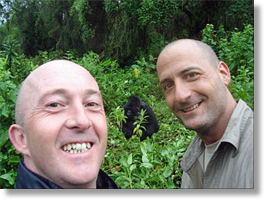
Self and Terry with a
photobombing Silverback!
photobombing Silverback!
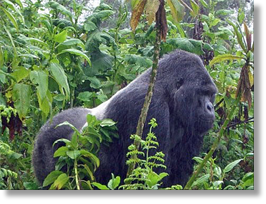
Silverbacks are to be treated
with respect - lots of respect!
with respect - lots of respect!
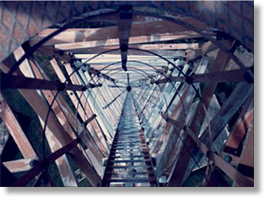
That is a big ladder with
your pants full of poo
your pants full of poo
Next month - Episode 5: Jarvo sets new heights in the fashion world and gets grabbed by the fuzz in Accra

From: Syd Avery, Guardamar del Segura, Alicante
Subject: An22 Antaeus (NATO Cock)
Hi, Tony,
Again a great issue and fantastic editing.
Good video about the An22 Antaeus, the original wide-body aeroplane. I first came across one in Frankfurt whilst flying for MK. We heard this horrendous noise, none of us could place it, then into sight lumbered the 22. Never seen anything like it in my life, to quote Tommy Steele!
Whilst with Air Foyle, I met up with one in Recife at the beginning of '99. It had suffered a main gear wheels up on landing. The crew maintained they had greens, but were not believed by the company or airport authorities. Fortunately, some fire personnel came forward and said they saw puffs of tyre smoke before the aeroplane settled back onto the runway. The Captain did say that it needed more power than normal to taxy to the parking area. Anyway to cut a short story long, I took over from the Flight Manager who had to return home due to a family illness. Aeroplane repaired and a retraction test was carried out OK. Our flight plan for Tenerife was for wheels down at over 9 hours. Airborne, "Gear up." says Anatoli, the Captain. When the gear was lowered for landing, all the technicians opened the inspection windows to check that the gear was down. Yes, and locked. Flight time, a tad over 6 hours. Then for me, EZY, Tenerife to Luton.
The colour scheme is quite good. I must stake my claim to fame on that. Loading a satellite at Nice, the aeroplane, a 124, was grubby and needed a re-paint. I suggested that it be painted with the Ukrainian flag, blue and yellow be used as a cheat line with the company logo on the tail. Never did patent it or get paid for it, but I can say, "That was my idea!".
Regards to all, and keep safe!
Syd
Subject: An22 Antaeus (NATO Cock)
Hi, Tony,
Again a great issue and fantastic editing.
Good video about the An22 Antaeus, the original wide-body aeroplane. I first came across one in Frankfurt whilst flying for MK. We heard this horrendous noise, none of us could place it, then into sight lumbered the 22. Never seen anything like it in my life, to quote Tommy Steele!
Whilst with Air Foyle, I met up with one in Recife at the beginning of '99. It had suffered a main gear wheels up on landing. The crew maintained they had greens, but were not believed by the company or airport authorities. Fortunately, some fire personnel came forward and said they saw puffs of tyre smoke before the aeroplane settled back onto the runway. The Captain did say that it needed more power than normal to taxy to the parking area. Anyway to cut a short story long, I took over from the Flight Manager who had to return home due to a family illness. Aeroplane repaired and a retraction test was carried out OK. Our flight plan for Tenerife was for wheels down at over 9 hours. Airborne, "Gear up." says Anatoli, the Captain. When the gear was lowered for landing, all the technicians opened the inspection windows to check that the gear was down. Yes, and locked. Flight time, a tad over 6 hours. Then for me, EZY, Tenerife to Luton.
The colour scheme is quite good. I must stake my claim to fame on that. Loading a satellite at Nice, the aeroplane, a 124, was grubby and needed a re-paint. I suggested that it be painted with the Ukrainian flag, blue and yellow be used as a cheat line with the company logo on the tail. Never did patent it or get paid for it, but I can say, "That was my idea!".
Regards to all, and keep safe!
Syd
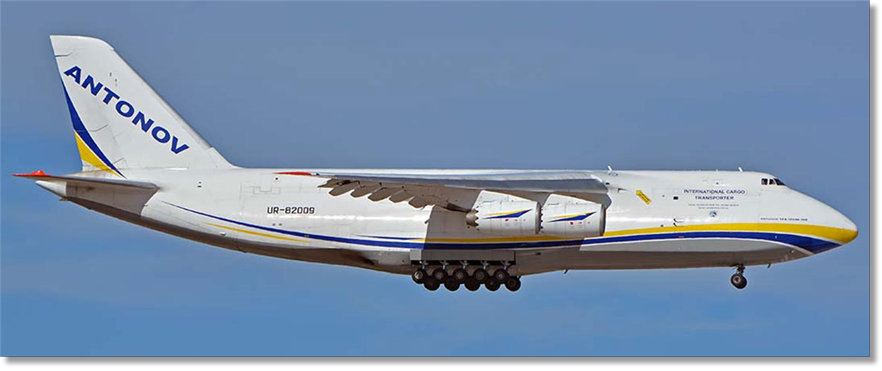

RCAF Proud to be part of the Toys for the North initiative
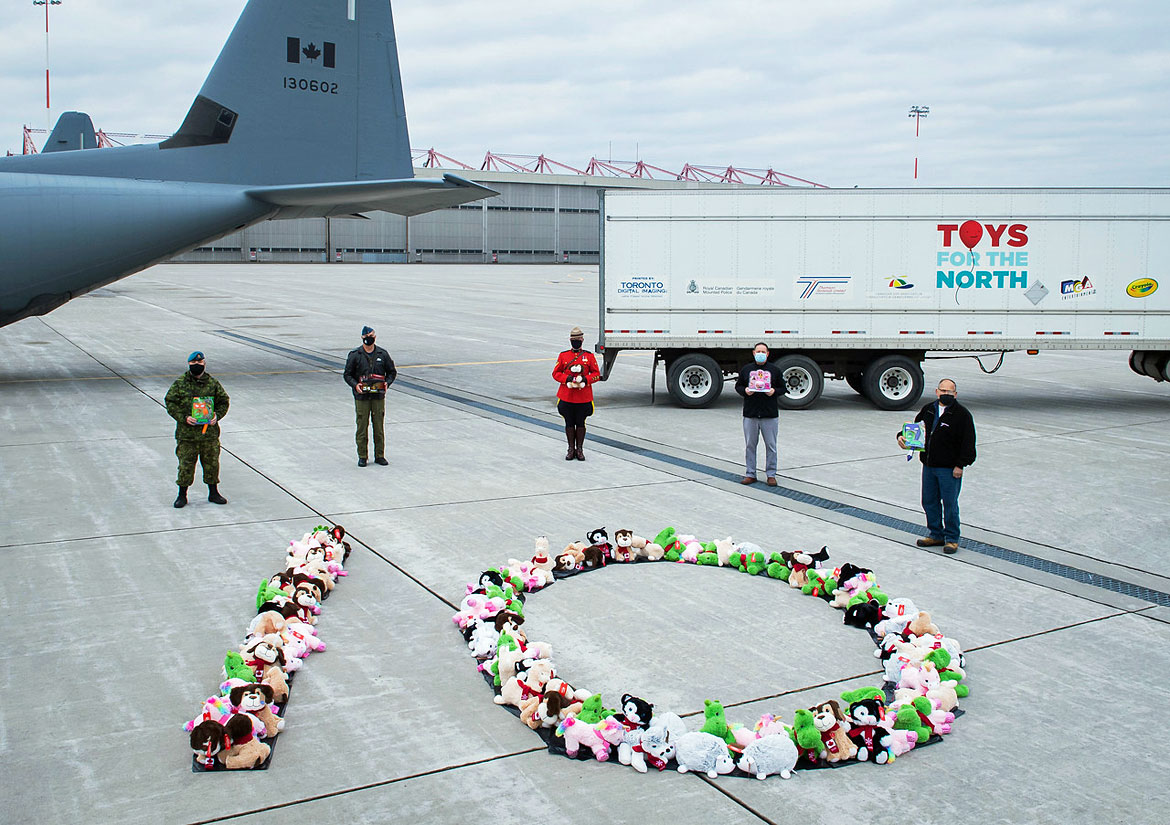
As part of the 10th Anniversary of the Royal Canadian Mounted Police in Ontario's Toys for the North program, more than 15,000 toys arrived at 8 Wing/CFB Trenton on November 27. While respecting all COVID-19 Public Health measures, RCAF members from 2 Air Movements Squadron, will load the toys into two CC-130J Hercules from 436 Transport Squadron, which will fly to Iqaluit, Nunavut, Goose Bay, N.L., and Thunder Bay, Ont.
From there, the Royal Canadian Mounted Police and local agencies will ensure the delivery of the toys to northern communities for Christmas. Toys were quarantined in the Thomson Terminals facility before the delivery to 8 Wing.
Many thanks to the Ontario RCMP, Canadian Toy Association (CTA), Thomson Terminals and all the volunteers who made this possible again despite the challenging COVID19 environment. Thanks also to generous toy companies who donated $265,000 worth of toys for the Toys for the North initiative.
Royal Canadian Air Force
From there, the Royal Canadian Mounted Police and local agencies will ensure the delivery of the toys to northern communities for Christmas. Toys were quarantined in the Thomson Terminals facility before the delivery to 8 Wing.
Many thanks to the Ontario RCMP, Canadian Toy Association (CTA), Thomson Terminals and all the volunteers who made this possible again despite the challenging COVID19 environment. Thanks also to generous toy companies who donated $265,000 worth of toys for the Toys for the North initiative.
Royal Canadian Air Force

RAF on high alert due to expected cargo aircraft activity in Arctic
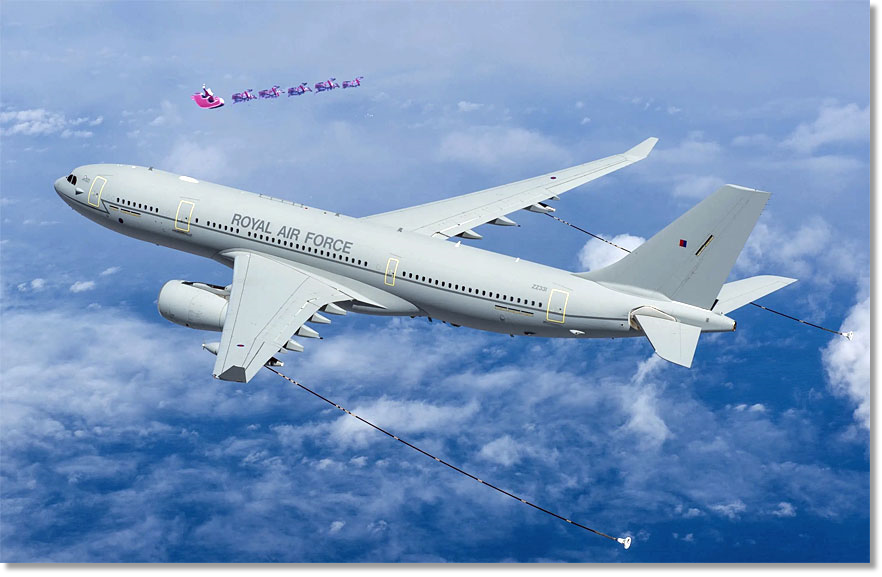
The Royal Air Force will reportedly be on high alert from now until the end of next month in order to track an ‘expected’ unregistered cargo flight from the Arctic region. The aircraft is understood to have “good or bad” intelligence gathering capabilities.
The move has been prompted by an incident around a year ago in which Typhoon aircraft escorted a Lapland registered aircraft over the UK’s major cities, the pilot of the craft was said to be under the influence of alcohol and very “festive”, this is especially dangerous due to the sheer volume of cargo the aircraft was carrying.
MoD spokesman Cringle had this to say: “Interception is part of what the QRA force do. We have to identify and confirm who or what is flying through our airspace or approaching our airspace and since the craft appears at the same time each year, we have a fairly good idea who will be flying but we don’t take any chances.”
This is expected to happen again towards the end of next month on the 24th through to the 25th.
The Ministry of Defence previously used satellites with infrared sensors to track the aircraft last time this happened, it is understood that the heat from an animals red nose was clearly visible and it was at this point RAF aircraft began escorting the jet over every British city, town and village.
More on this as it develops, we expect more updates on the 25th of December.
UK Defence Journal
The move has been prompted by an incident around a year ago in which Typhoon aircraft escorted a Lapland registered aircraft over the UK’s major cities, the pilot of the craft was said to be under the influence of alcohol and very “festive”, this is especially dangerous due to the sheer volume of cargo the aircraft was carrying.
MoD spokesman Cringle had this to say: “Interception is part of what the QRA force do. We have to identify and confirm who or what is flying through our airspace or approaching our airspace and since the craft appears at the same time each year, we have a fairly good idea who will be flying but we don’t take any chances.”
This is expected to happen again towards the end of next month on the 24th through to the 25th.
The Ministry of Defence previously used satellites with infrared sensors to track the aircraft last time this happened, it is understood that the heat from an animals red nose was clearly visible and it was at this point RAF aircraft began escorting the jet over every British city, town and village.
More on this as it develops, we expect more updates on the 25th of December.
UK Defence Journal

While we're on the topic...
Yes, in case you haven't noticed, it's that time of year again. The Christmas and New Year's OBA newsletter is scheduled to be published on Monday 28th December, with a cut-off for submissions of Saturday 26th.
The newsletter will take a similar format to recent years, with the theme of sending seasonal greetings to all. Just as an aide-mémoire, last year's Christmas and New Year's newsletter is here: http://ukmamsoba.org/obb123119.html
Just a couple of sentences will suffice, and if you have a photo you can send along then all the better (don't worry about formatting, I can look after that).
This year, more than ever, we need to stay in touch with each other, so don't be shy, place fingers on keyboards, the earlier the better!
Thanks,
Tony
ukmamsoba@gmail.com
The newsletter will take a similar format to recent years, with the theme of sending seasonal greetings to all. Just as an aide-mémoire, last year's Christmas and New Year's newsletter is here: http://ukmamsoba.org/obb123119.html
Just a couple of sentences will suffice, and if you have a photo you can send along then all the better (don't worry about formatting, I can look after that).
This year, more than ever, we need to stay in touch with each other, so don't be shy, place fingers on keyboards, the earlier the better!
Thanks,
Tony
ukmamsoba@gmail.com
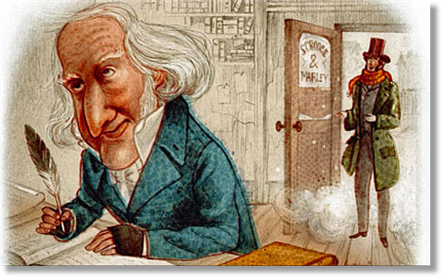

A new member who has joined us recently:
Welcome to the OBA!
Jean-Yves Gagnon, Clermont, QC

From: Julian Riley, Swindon, Wilts
Subject: A Nice Night Out
Subject: A Nice Night Out

A Nice Night Out
In Mid 1963, I returned from my tour in Germany to RAF Odiham and a unit called a Support Group. Basically, this was a huge hangar full of air-transportable equipment that could be moved to anywhere in the world in the event of a conflict breaking out. As I was a radar tech, the equipment in our section consisted of Air Traffic Control Navaids including a small radar Murphy beacon. There being no actual conflicts to go to, we had to make do with exercises and in the early autumn a massive exercise called Triplex West was to involve all three services in the Western Desert in the north of Libya.
Our job was to construct an ATC at a forward air head on the Northern coast and we were to travel to RAF El Adem near Tobruk by medium range transport which in those days was the Blackburn Beverley. What can I say about the Blackburn Beverley? Nothing complimentary, I'm sure. A bumbling great aeroplane with a huge body for freight, and a tail boom from which parachutists could jump if they so wished. Aerodynamically, like the bumble bee I think it was actually too big to fly but didn't know it.
Our job was to construct an ATC at a forward air head on the Northern coast and we were to travel to RAF El Adem near Tobruk by medium range transport which in those days was the Blackburn Beverley. What can I say about the Blackburn Beverley? Nothing complimentary, I'm sure. A bumbling great aeroplane with a huge body for freight, and a tail boom from which parachutists could jump if they so wished. Aerodynamically, like the bumble bee I think it was actually too big to fly but didn't know it.
However, we found ourselves at Abingdon where three or four of these beasts would transport our equipment and us to North Africa, and after an early breakfast we climbed an immense ladder which stretched half-way to the sky to access the tail boom by doors under the said tail boom which was so high that some nervous travellers actually got air sick before the aircraft left the ground. Off we went flying low over the south of England (no pressurisation in the Beverley), excited young airmen on an adventure. On leaving the coast of England we noticed the aircraft turning and heading back inland.
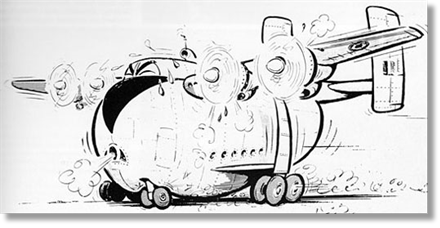
The driver then came on the intercom to announce “We're sorry about this, lads but we've got a problem with an inverter thingy or whatever, and we're popping back to Abingdon to get it changed”.
We landed mid-morning descending the huge aluminium shaky ladder and headed for the crew room for coffee. Half an hour later we were again climbing Jacob's Ladder to board again our trusty aeroplane and off we went.
This time we seemed to get half-way across the channel before we again turned back with a similar message about the “inverter thingy” At Abingdon they were getting fed-up with “just popping back” and this time we went to the mess for an early lunch. After a quick lunch we yet again climbed the “Stairway to the Stars” for a third go at departure. This time we made it all the way to La Belle France.
Now the usual route for these types of aircraft going to El Adem was via Orange, a French Air Force base in Provence, then on to Luqa in Malta and on to Libya. However, on this day the French President, one Charles de Gaulle, was inspecting Orange and the last thing their commanding officer wanted were grotty Beverley’s spewing oil everywhere and fouling up his station inspection. I forgot to mention that oil always seemed to be pouring off the engine cowlings, so much so that it was said that the navigator needed to find his way to a destination, and to get home he only needed to follow the oil slick left on the outward journey.
And so, we were diverted to Nice International Airport, Côte d‘Azure. The Captain of the crew then came to deliver the bad news, namely that the crew had completed their flying hours for that day and we would have to spend the night in Nice. But not to worry, he would find us a nice (sic) hotel so descending for the last time that day, the fireman’s' ladder, we were whisked off to a comfortable hotel spending a very pleasant night out at the expense of Her Majesty. Now call me an old cynic but to this day it seemed to me that the “inverter whatsit thingy” was but an ideal excuse for a night out in Nice! The other aircraft went straight on delivering our mates to El Adem and a night in a tent in the desert .
Julian Riley
(Lifted from U3A Newsletter)
We landed mid-morning descending the huge aluminium shaky ladder and headed for the crew room for coffee. Half an hour later we were again climbing Jacob's Ladder to board again our trusty aeroplane and off we went.
This time we seemed to get half-way across the channel before we again turned back with a similar message about the “inverter thingy” At Abingdon they were getting fed-up with “just popping back” and this time we went to the mess for an early lunch. After a quick lunch we yet again climbed the “Stairway to the Stars” for a third go at departure. This time we made it all the way to La Belle France.
Now the usual route for these types of aircraft going to El Adem was via Orange, a French Air Force base in Provence, then on to Luqa in Malta and on to Libya. However, on this day the French President, one Charles de Gaulle, was inspecting Orange and the last thing their commanding officer wanted were grotty Beverley’s spewing oil everywhere and fouling up his station inspection. I forgot to mention that oil always seemed to be pouring off the engine cowlings, so much so that it was said that the navigator needed to find his way to a destination, and to get home he only needed to follow the oil slick left on the outward journey.
And so, we were diverted to Nice International Airport, Côte d‘Azure. The Captain of the crew then came to deliver the bad news, namely that the crew had completed their flying hours for that day and we would have to spend the night in Nice. But not to worry, he would find us a nice (sic) hotel so descending for the last time that day, the fireman’s' ladder, we were whisked off to a comfortable hotel spending a very pleasant night out at the expense of Her Majesty. Now call me an old cynic but to this day it seemed to me that the “inverter whatsit thingy” was but an ideal excuse for a night out in Nice! The other aircraft went straight on delivering our mates to El Adem and a night in a tent in the desert .
Julian Riley
(Lifted from U3A Newsletter)

Canadians show US Soldiers how they transport equipment
Soldiers from the Canadian Armed Forces show US Army Soldiers how they pack and transport equipment throughout the AOR.
Dan Fraser remarked: "Some of these US ARMY members had never seen the inside of a Herc or any pallet build up. They were Artillery Air Defence; it was a great coalition training day!"
386th Air Expeditionary Wing
Dan Fraser remarked: "Some of these US ARMY members had never seen the inside of a Herc or any pallet build up. They were Artillery Air Defence; it was a great coalition training day!"
386th Air Expeditionary Wing
(Apologies for the cupcake music - not my choice!)

A BA captain was sucked out of a cockpit window mid-flight 30 years ago and lived to tell the tale
As tales of survival against the odds go, this one takes some beating.
Thirty years ago a British Airways captain was sucked halfway out of his cockpit when a windscreen blew out at 17,300ft over Oxfordshire. He survived because a steward held onto his trouser belt and legs – and thanks to his co-pilot managing to make an emergency landing.
It was June 10, 1990, and the flight crew of the Malaga-bound plane, a BAC-111 aircraft, had earlier performed a routine take-off from Birmingham. But then, over Didcot, the left-hand windscreen in the cockpit came loose and flew off, causing a potentially deadly decompression. The air left the flight deck with such force that the cockpit door was pulled off its hinges and hurled against the throttle controls, causing the plane to rapidly accelerate as it headed downwards. The captain, Tim Lancaster, was half sucked out, with his legs caught on the flight controls. While his first officer, Alastair Atchison, fought to control the aircraft, cabin attendant Nigel Ogden, who’d enter the flight deck to ask if the pilots wanted any refreshments, grabbed hold of Lancaster and held onto him with all his might. Mr Lancaster’s head, meanwhile, was banging against the fuselage – the crew were certain he’d died.
Mr Ogden told the Sunday Times: 'All I can remember is looking at Alastair Atchinson, the co-pilot, struggling to get the plane under control and shouting "Mayday! Mayday!" into the radio.' Eventually, with the help of another flight attendant, Simon Rogers, they freed Mr Lancaster's legs from the controls and Mr Atchison was able to make an emergency landing at Southampton, with no passenger injuries.
That Mr Lancaster survived the 22-minute ordeal is miraculous. He was treated in hospital for a broken arm, frostbite and severe bruising, while Mr Ogden suffered a dislocated shoulder and frostbite.
It was discovered later that the windscreen was newly fitted, but with screws that were too small in diameter. All 87 of the bolts flew out once the aircraft gained altitude, owing to the difference in pressure between the inside and outside of the fuselage.
Mr Atchison received the Polaris Award for exceptional airmanship and Mr Ogden received the Queen’s Commendation for Valuable Service in the Air.
The Sunday Times
Thirty years ago a British Airways captain was sucked halfway out of his cockpit when a windscreen blew out at 17,300ft over Oxfordshire. He survived because a steward held onto his trouser belt and legs – and thanks to his co-pilot managing to make an emergency landing.
It was June 10, 1990, and the flight crew of the Malaga-bound plane, a BAC-111 aircraft, had earlier performed a routine take-off from Birmingham. But then, over Didcot, the left-hand windscreen in the cockpit came loose and flew off, causing a potentially deadly decompression. The air left the flight deck with such force that the cockpit door was pulled off its hinges and hurled against the throttle controls, causing the plane to rapidly accelerate as it headed downwards. The captain, Tim Lancaster, was half sucked out, with his legs caught on the flight controls. While his first officer, Alastair Atchison, fought to control the aircraft, cabin attendant Nigel Ogden, who’d enter the flight deck to ask if the pilots wanted any refreshments, grabbed hold of Lancaster and held onto him with all his might. Mr Lancaster’s head, meanwhile, was banging against the fuselage – the crew were certain he’d died.
Mr Ogden told the Sunday Times: 'All I can remember is looking at Alastair Atchinson, the co-pilot, struggling to get the plane under control and shouting "Mayday! Mayday!" into the radio.' Eventually, with the help of another flight attendant, Simon Rogers, they freed Mr Lancaster's legs from the controls and Mr Atchison was able to make an emergency landing at Southampton, with no passenger injuries.
That Mr Lancaster survived the 22-minute ordeal is miraculous. He was treated in hospital for a broken arm, frostbite and severe bruising, while Mr Ogden suffered a dislocated shoulder and frostbite.
It was discovered later that the windscreen was newly fitted, but with screws that were too small in diameter. All 87 of the bolts flew out once the aircraft gained altitude, owing to the difference in pressure between the inside and outside of the fuselage.
Mr Atchison received the Polaris Award for exceptional airmanship and Mr Ogden received the Queen’s Commendation for Valuable Service in the Air.
The Sunday Times
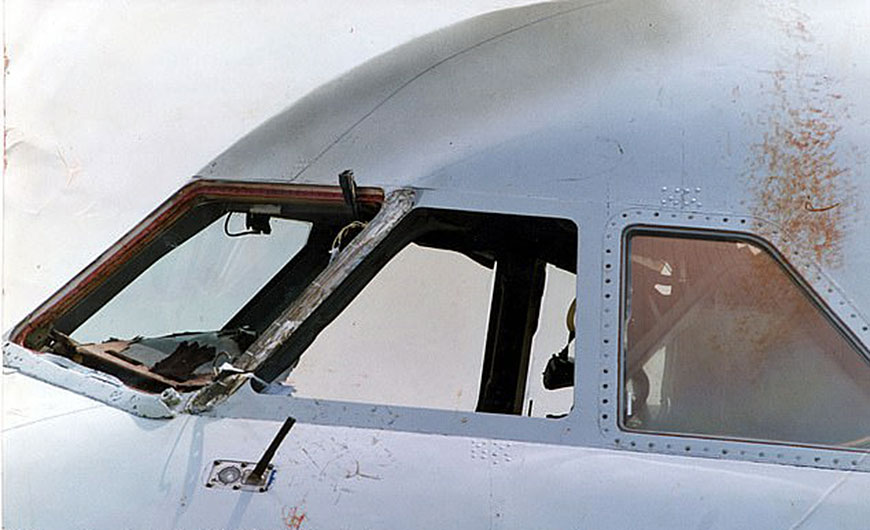

Breaking News - AN-124 eats two F/A-18 Hornet Fighters
The Ukrainian An-124 carried out the transportation of two F / A-18 "Hornet" fighters from Australia to Canada. The 8th and 9th intermediate aircraft arrived in Canada. After modification, they will join the country's Armed Forces.
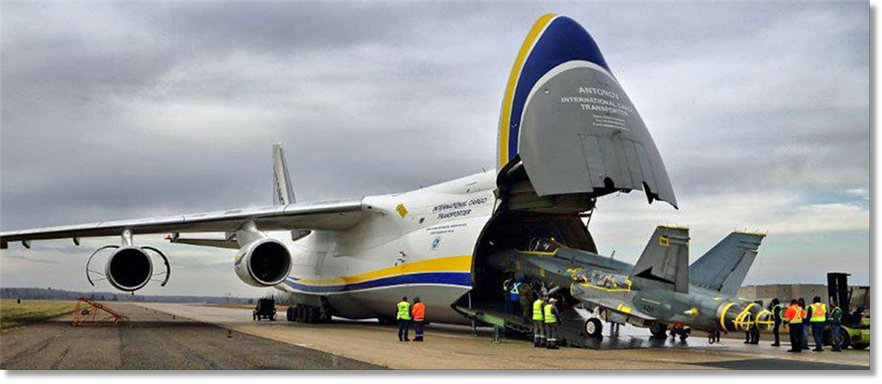
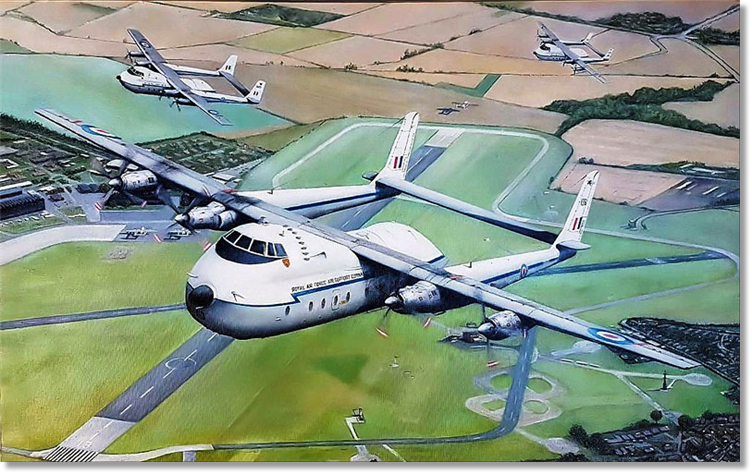
This work by artist Mal Grosse shows a formation of RAF Armstrong Whitworth AW 660 Argosy aircraft, overflying RAF Benson. The foreground aircraft is from 114 Sqn, which shared the station with 267 Sqn in the 1960's.
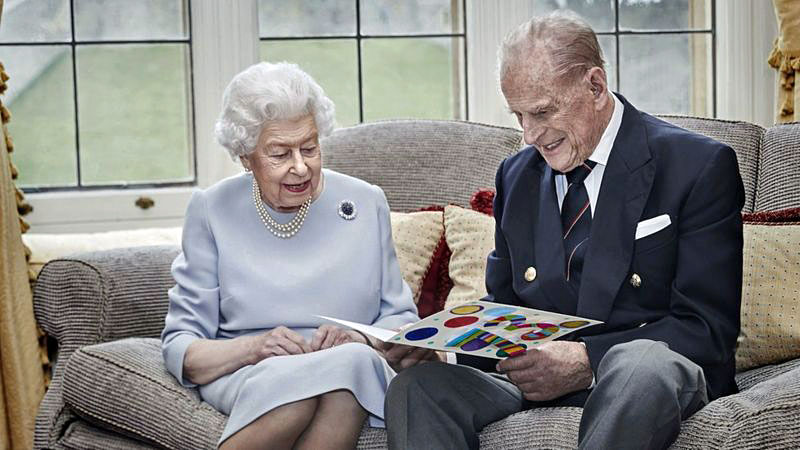
HM The Queen and Prince Philip celebrated their 73rd Anniversary recently
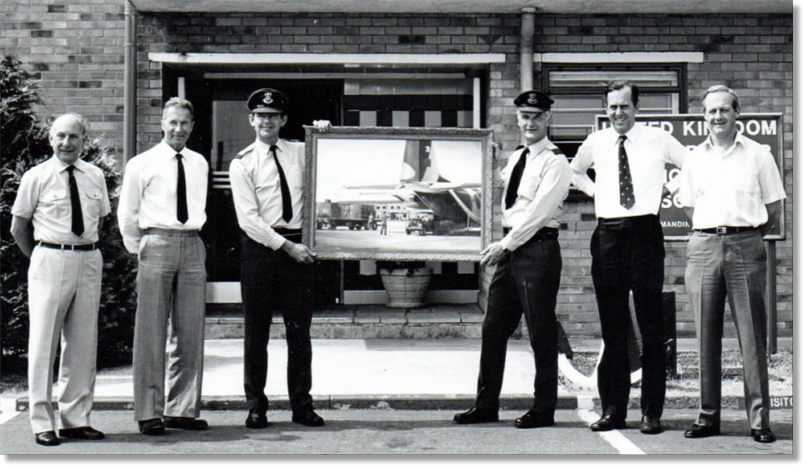
All but one of the first six OC UKMAMS at RAF Lyneham in 1984: Bill Jacobs, Mike Slade, Artist, Bob Dixon, John Lambert and Bryan Morgan. Only FTR was David Gamble
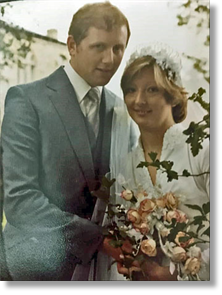
From: Nev and Allison Whitham, Preston, Lancs
Alison and I reached our Ruby Wedding anniversary (40 years) on 11 Oct but will put off the celebration until after Covid relents. We first met in April 1976 at Lyneham and have been an item ever since. How time flies!
Alison and I reached our Ruby Wedding anniversary (40 years) on 11 Oct but will put off the celebration until after Covid relents. We first met in April 1976 at Lyneham and have been an item ever since. How time flies!
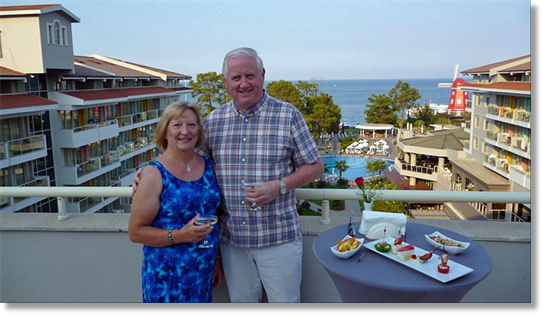
From: John Guy, Northampton
During the second lockdown I have taken to reading the Newsletter from day one. Thus I refer to Newsletter 113001 Dtd 30 Nov 01 (Dave Howley 26 Nov 01). You provided a photograph of No 1 Advanced Movements Controller Course Dtd Feb/Mar 72, & in 2020 I am about to provide the students names for one & all.
During the second lockdown I have taken to reading the Newsletter from day one. Thus I refer to Newsletter 113001 Dtd 30 Nov 01 (Dave Howley 26 Nov 01). You provided a photograph of No 1 Advanced Movements Controller Course Dtd Feb/Mar 72, & in 2020 I am about to provide the students names for one & all.
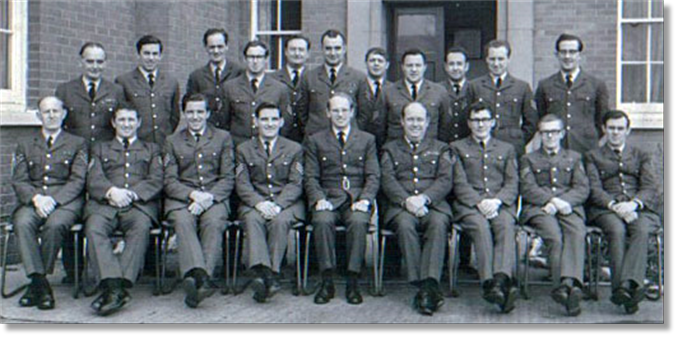
Rear: F/Sgt Jack Janman, Sgt Austin Dunne, F/Sgt Bas Shatford, Sgt Loader, F/Sgt Bill Fitt, Sgt Arthur Taylor, Sgt Pete Worthington, Sgt Griggs, S/Sgt Dougie Trevorrow, Sgt Parry, Sgt Bert Wilford.
Front: Sgt John Guy, Sgt Pates, Sgt Tony Harris also Sgt Harris, Flt/Lt Clive Upton, F/Sgt Al Wincott, Sgt John Illsley, Sgt Armstrong, Sgt Heffey.
Front: Sgt John Guy, Sgt Pates, Sgt Tony Harris also Sgt Harris, Flt/Lt Clive Upton, F/Sgt Al Wincott, Sgt John Illsley, Sgt Armstrong, Sgt Heffey.
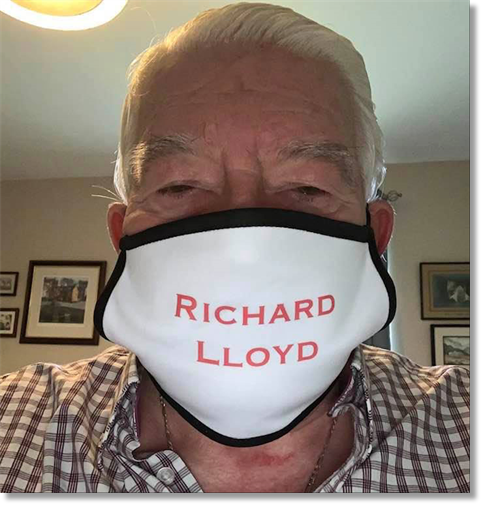
Richard Lloyd (RAF) is having second thoughts about his choice of PPE
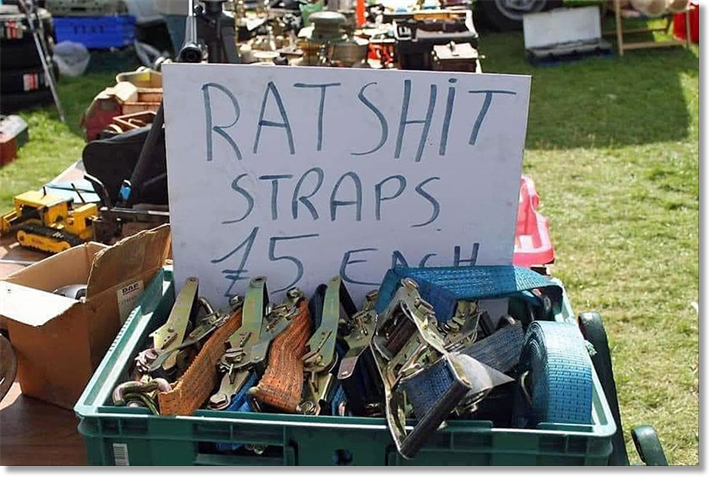
I believe that should read, "Ratchet Straps £5 Each"
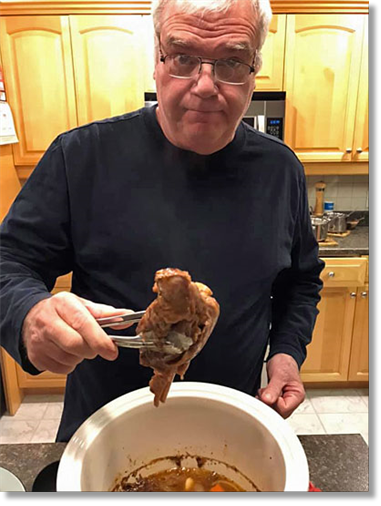
Bob Barclay (RCAF) has discovered a way to get rid of those pesky pigeons!
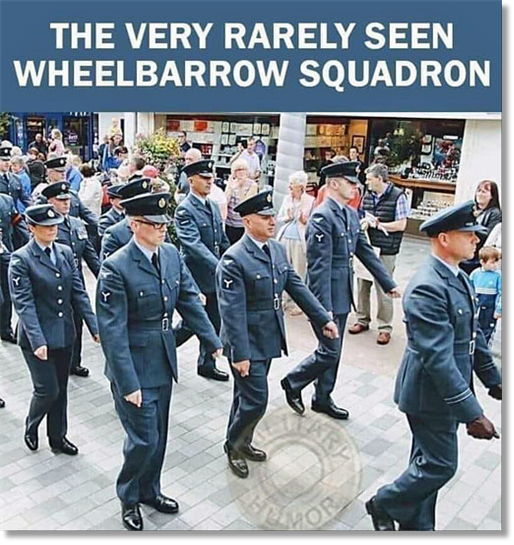
Steven Richards
Thought some of you might appreciate my late Dad's take on Air Transport from 1996. This cartoon of the "Lyneham Belle" was one of a series of four he completed on different aspects of the RAF. He presented this one to me as I was serving on UKMAMS at the time which is why his representation of the squadron is so accurate.
Thought some of you might appreciate my late Dad's take on Air Transport from 1996. This cartoon of the "Lyneham Belle" was one of a series of four he completed on different aspects of the RAF. He presented this one to me as I was serving on UKMAMS at the time which is why his representation of the squadron is so accurate.

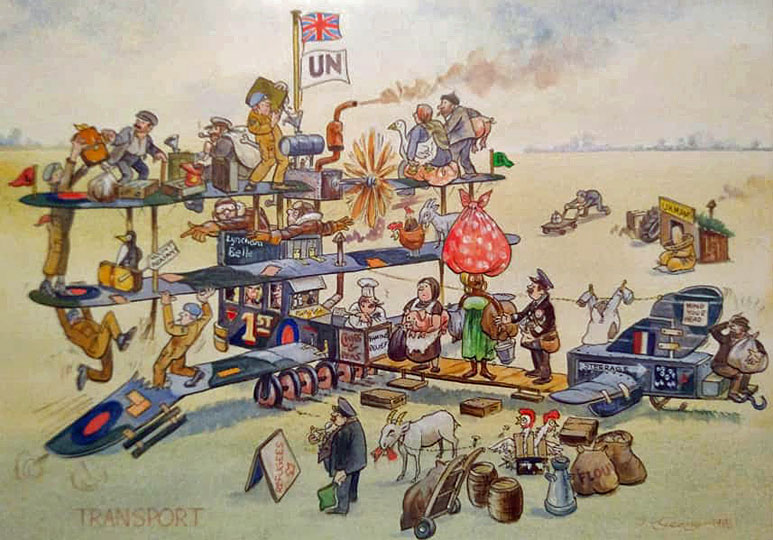
From: Nigel McCann, Armadale, Falkirk
Subject: Veterans Radio Net
Hi Tony,
I volunteer on an online Veterans Radio station and was wondering if you could plug them in the next publications of the OBA Briefs.
The Station can be accessed a number of ways:
Via PC and enter web address https://veteransradionet.co.uk/ in your web browser. Via Alexa or Google Nest by saying Alexa/ Hey Google play Veterans Radio Net on Tune in.
Subject: Veterans Radio Net
Hi Tony,
I volunteer on an online Veterans Radio station and was wondering if you could plug them in the next publications of the OBA Briefs.
The Station can be accessed a number of ways:
Via PC and enter web address https://veteransradionet.co.uk/ in your web browser. Via Alexa or Google Nest by saying Alexa/ Hey Google play Veterans Radio Net on Tune in.
More Relevant Stuff
This newsletter is Dedicated
to the memories of:
Dick Goss (RAF)
Mike Collins (RAF)
Bob Schuh (RCAF)
John I'Anson (RAF)
Dennis Austin (RCAF)
Roy Brocklebank (RAF)
John McClymont Sr. (RAF)
Thomas (Tod) Geoghegan (RAF)
Shirley, wife of Bruce Oram (RAF)
Christine, wife of Shaun Curran (RAF)
Janice, wife of CWO (ret'd) Phil Berry (RCAF)
to the memories of:
Dick Goss (RAF)
Mike Collins (RAF)
Bob Schuh (RCAF)
John I'Anson (RAF)
Dennis Austin (RCAF)
Roy Brocklebank (RAF)
John McClymont Sr. (RAF)
Thomas (Tod) Geoghegan (RAF)
Shirley, wife of Bruce Oram (RAF)
Christine, wife of Shaun Curran (RAF)
Janice, wife of CWO (ret'd) Phil Berry (RCAF)
Tony Gale
ukmamsoba@gmail.com
ukmamsoba@gmail.com
.


